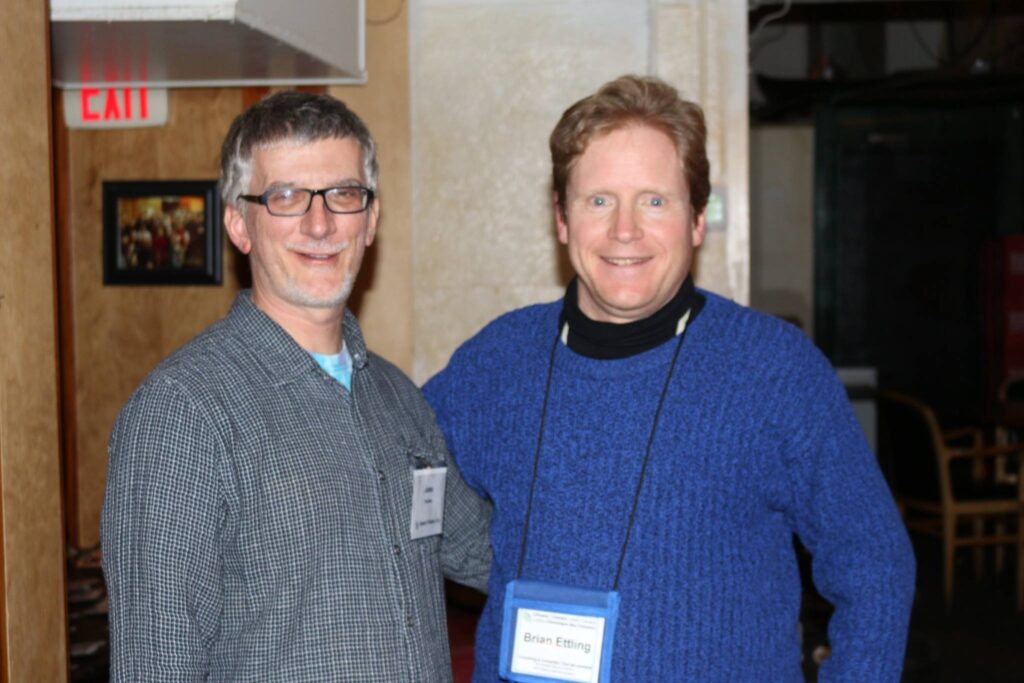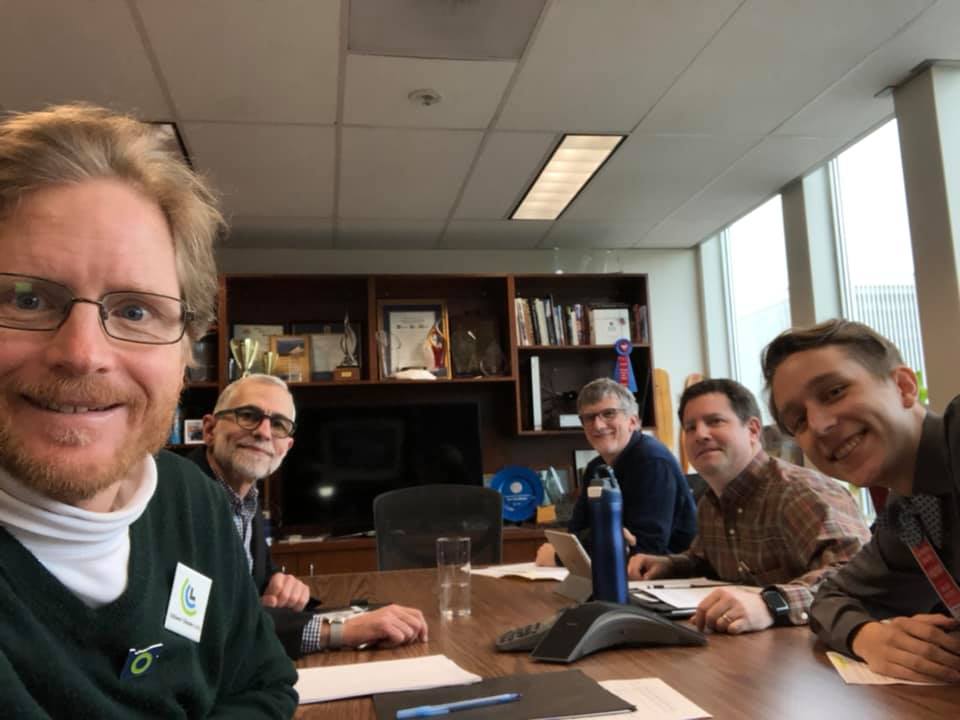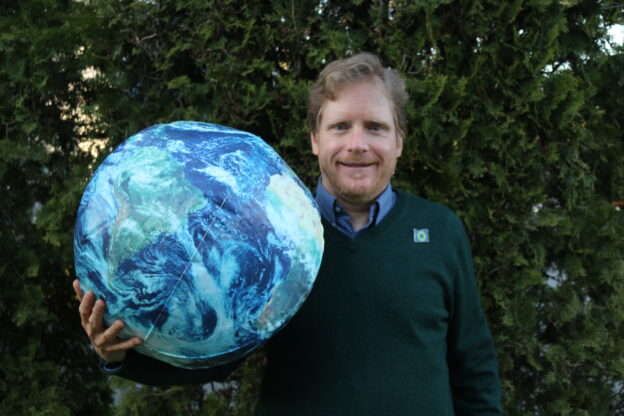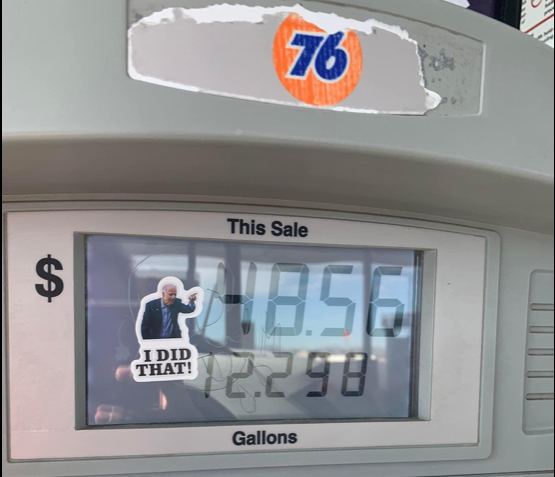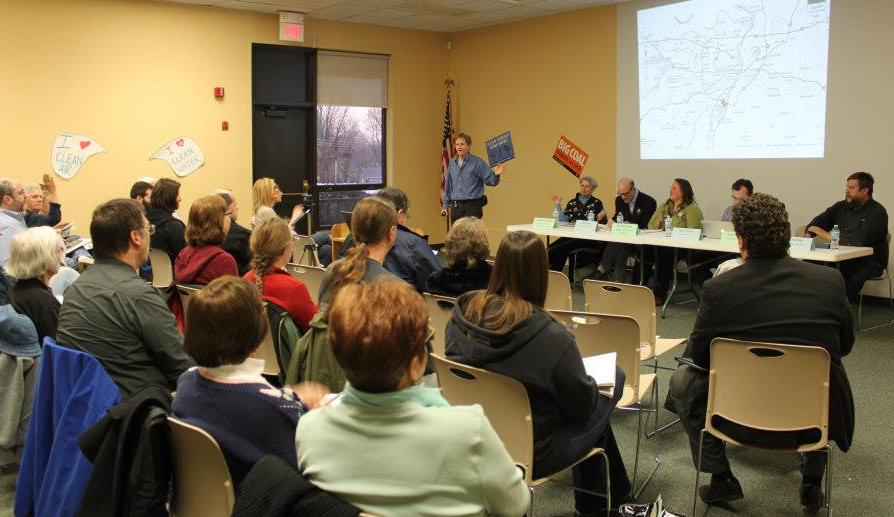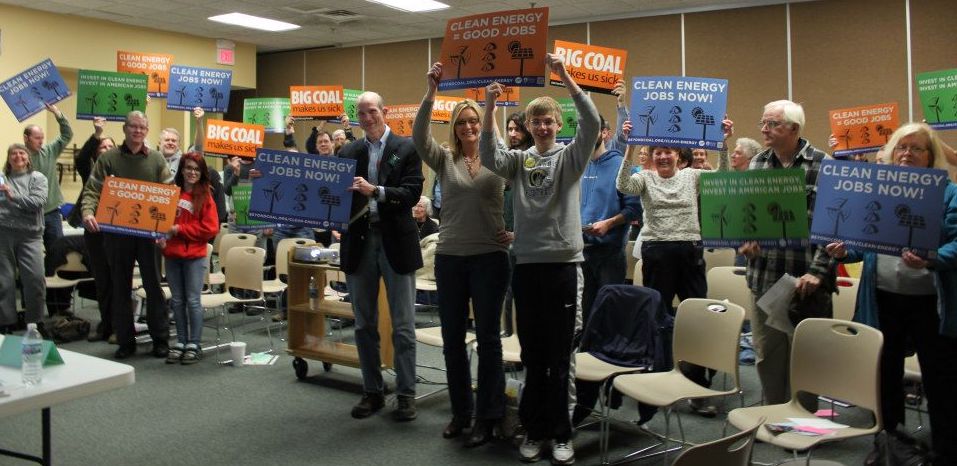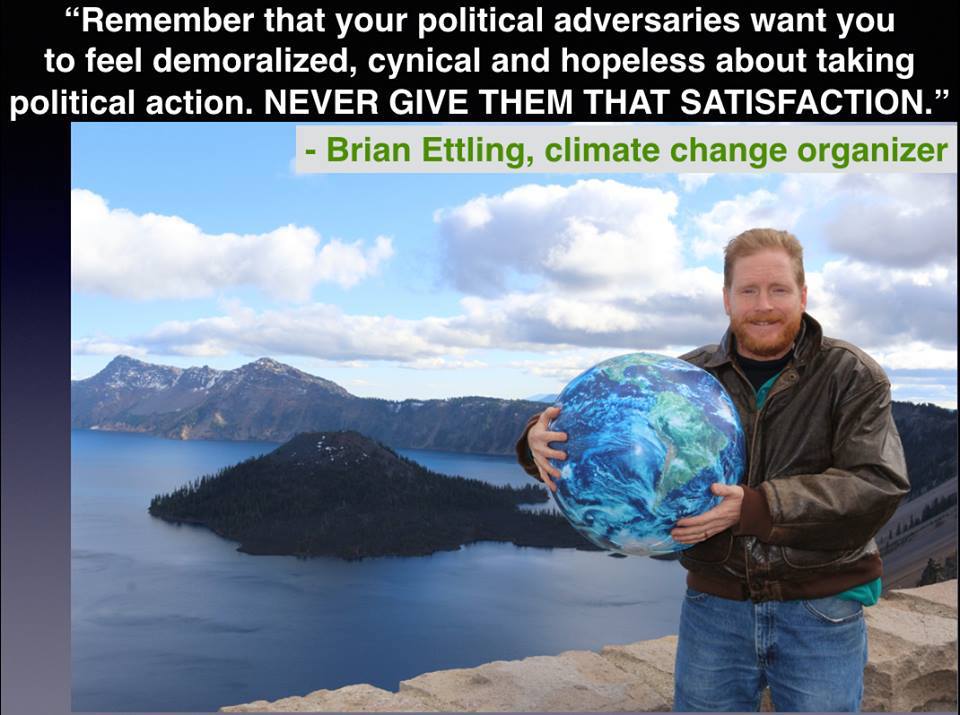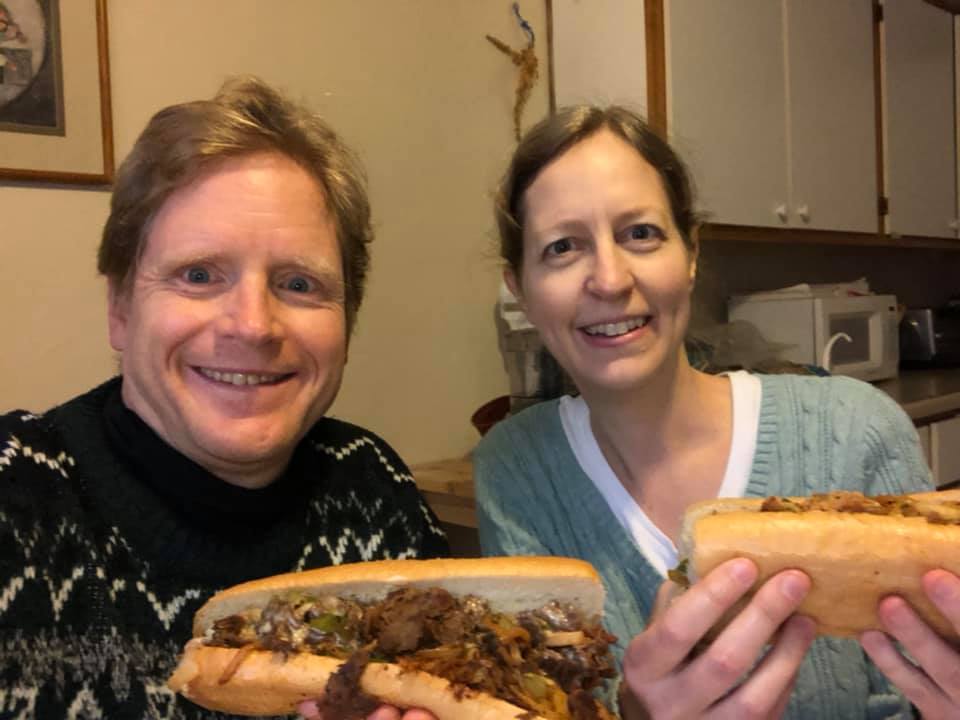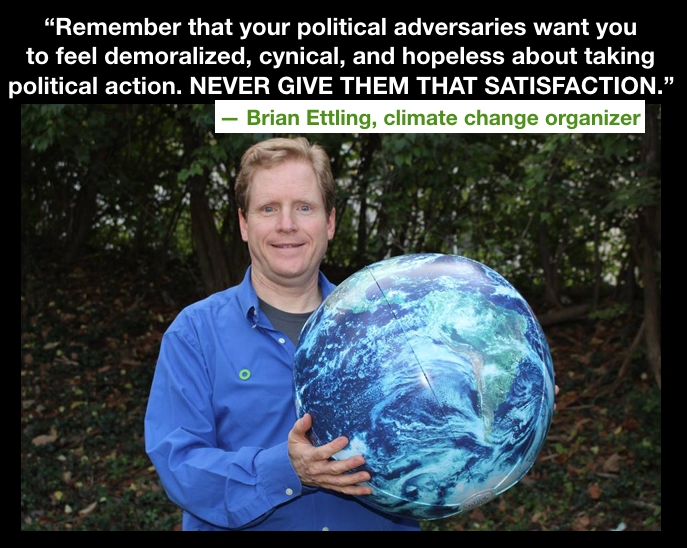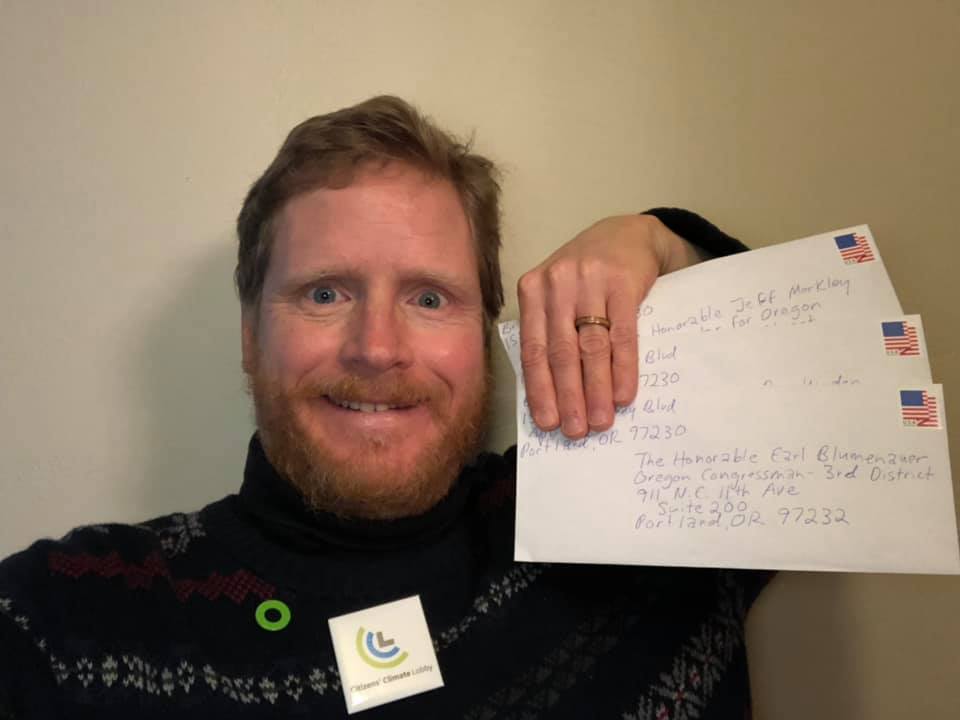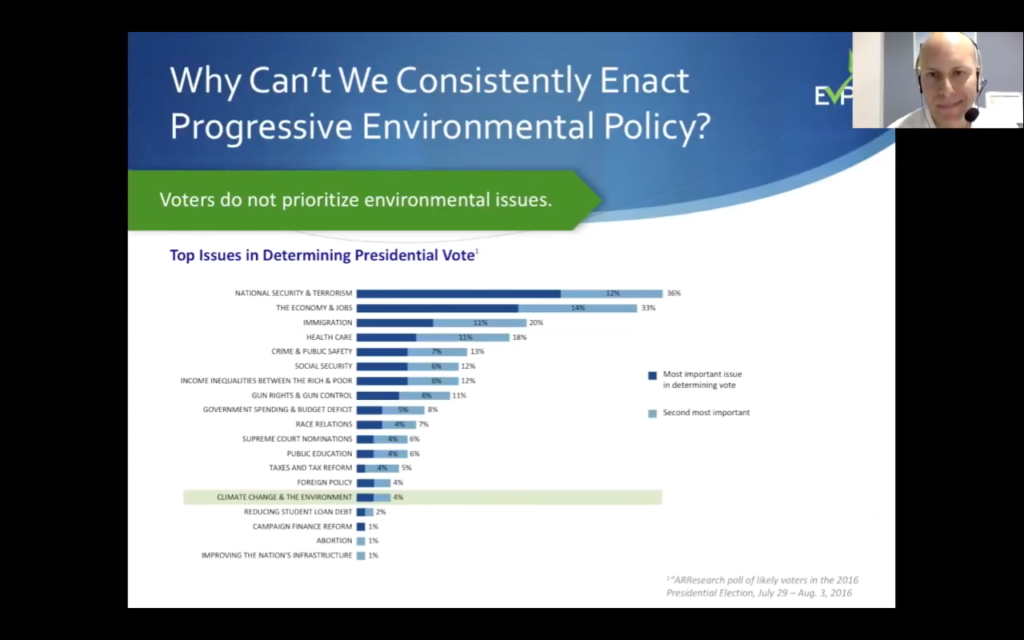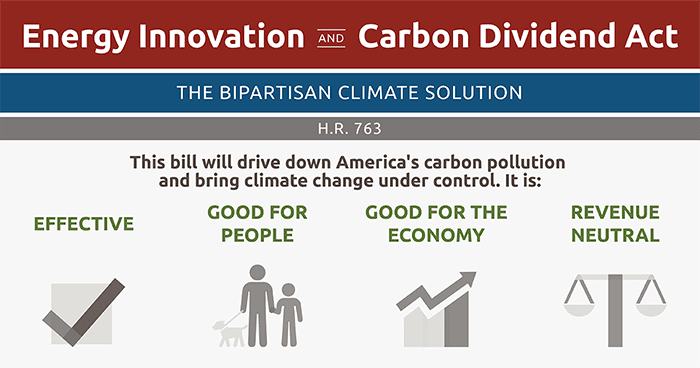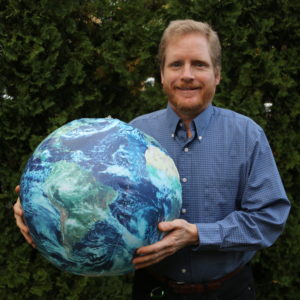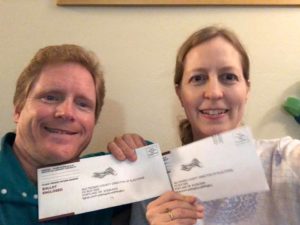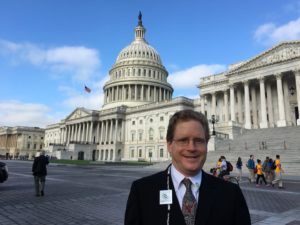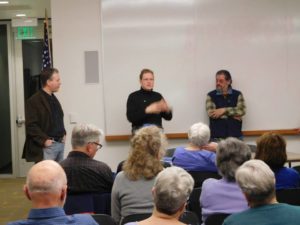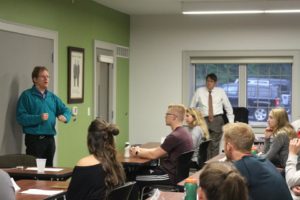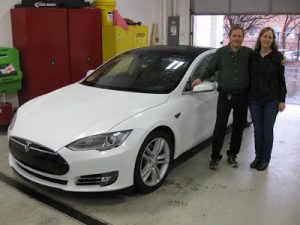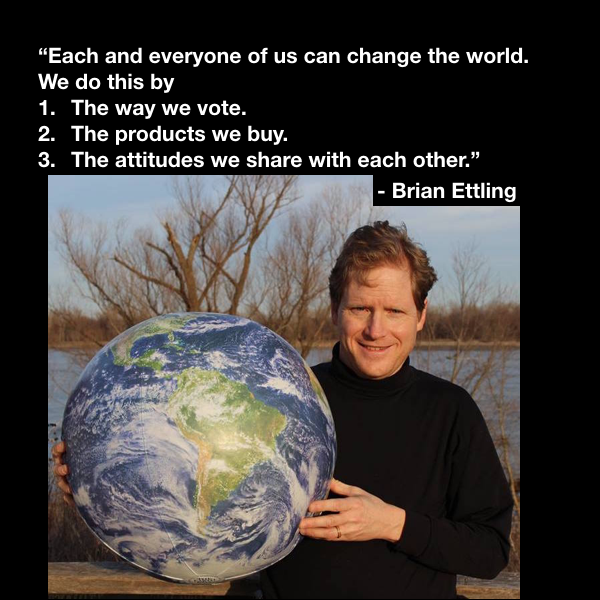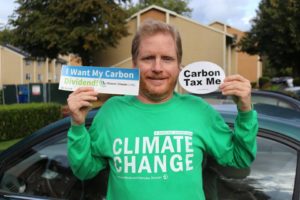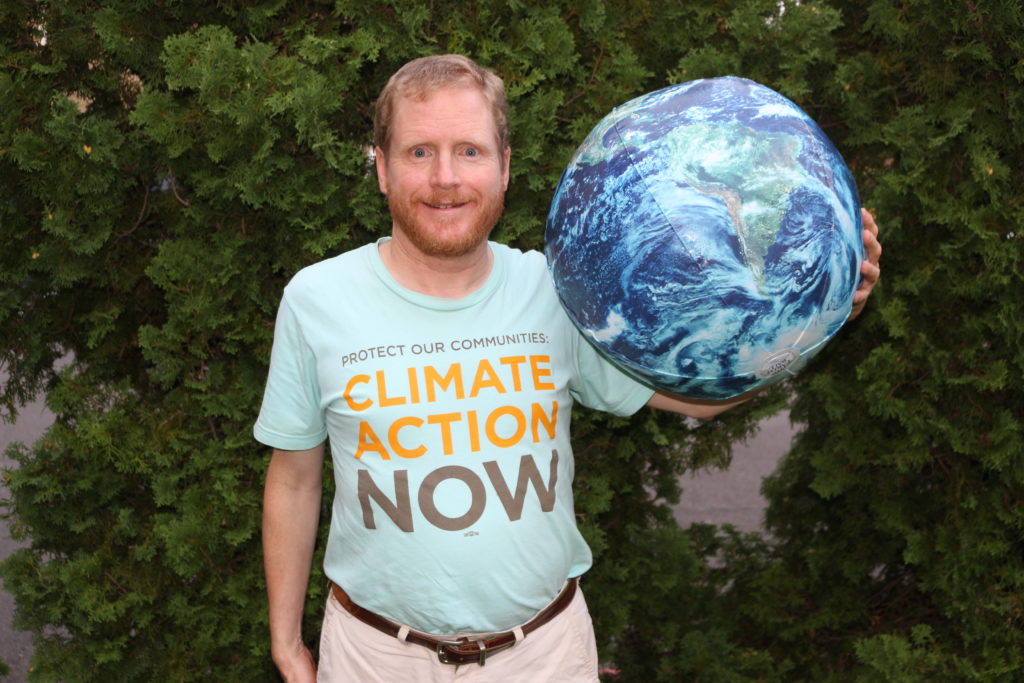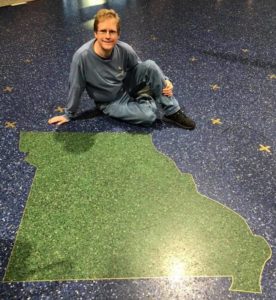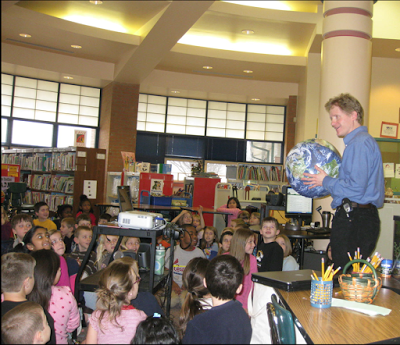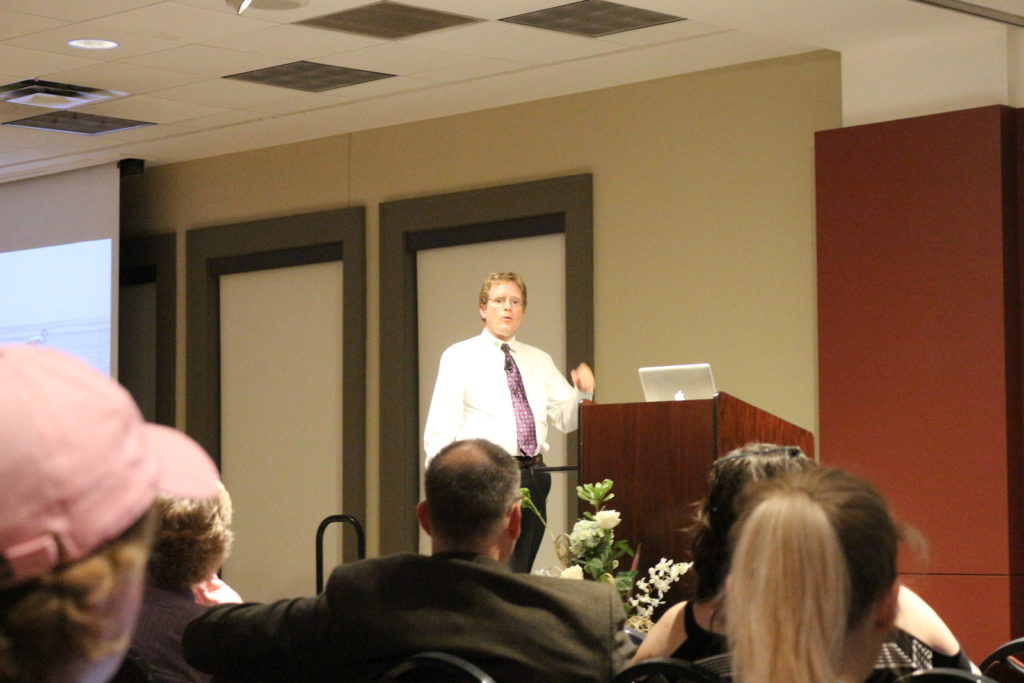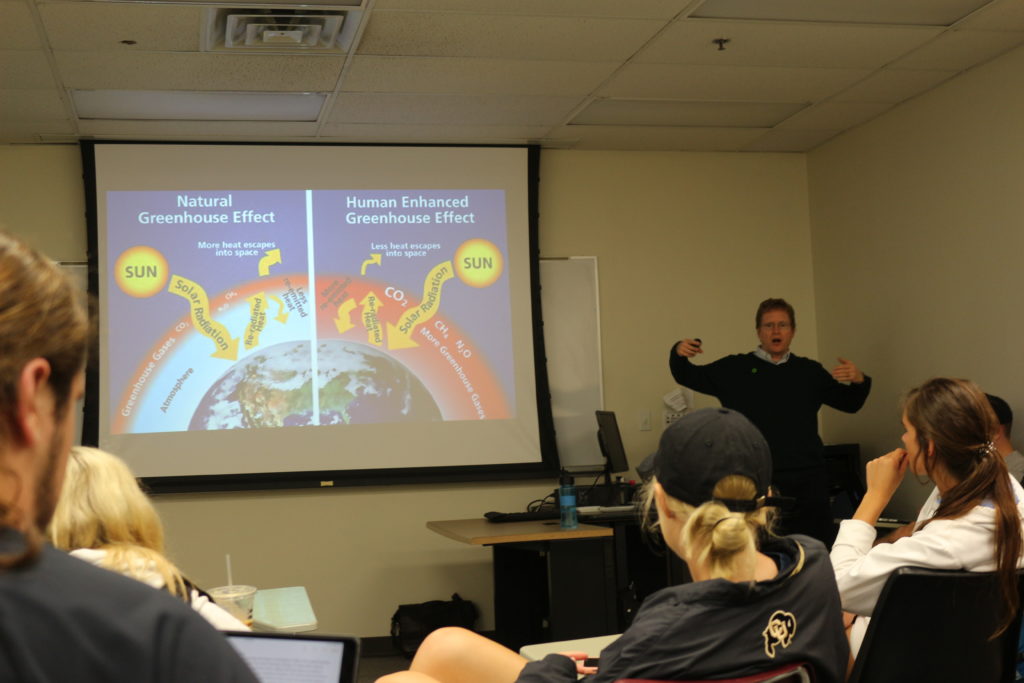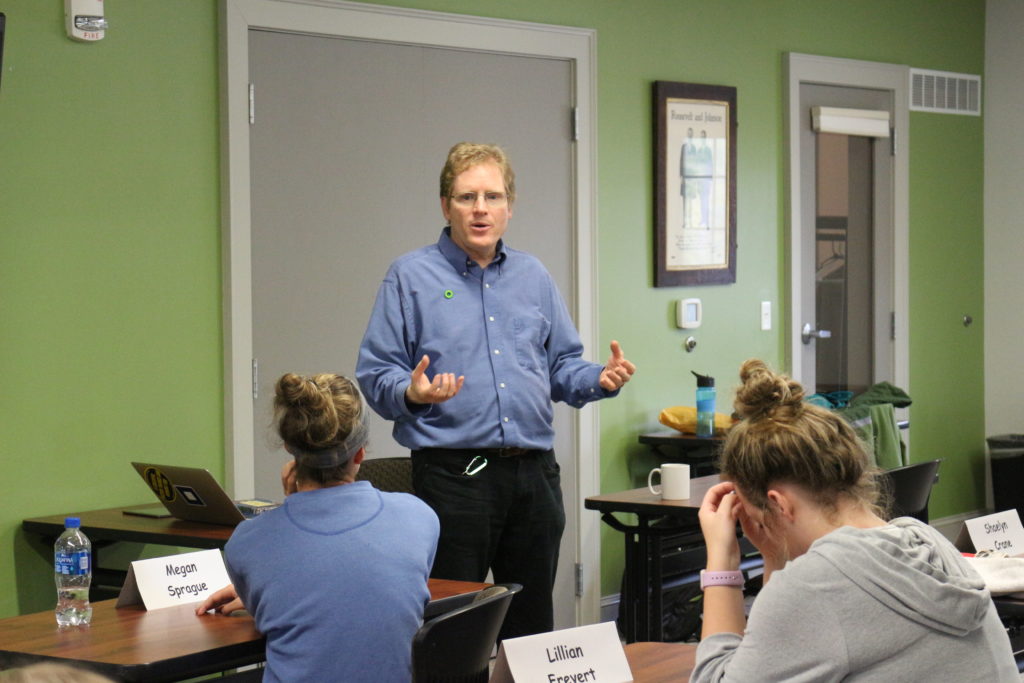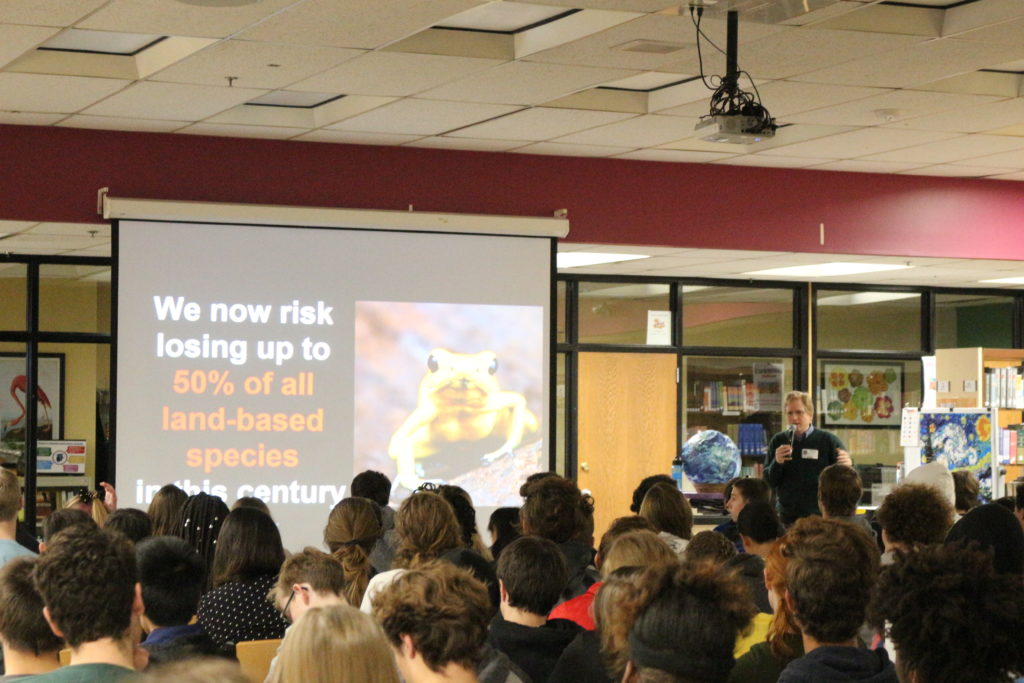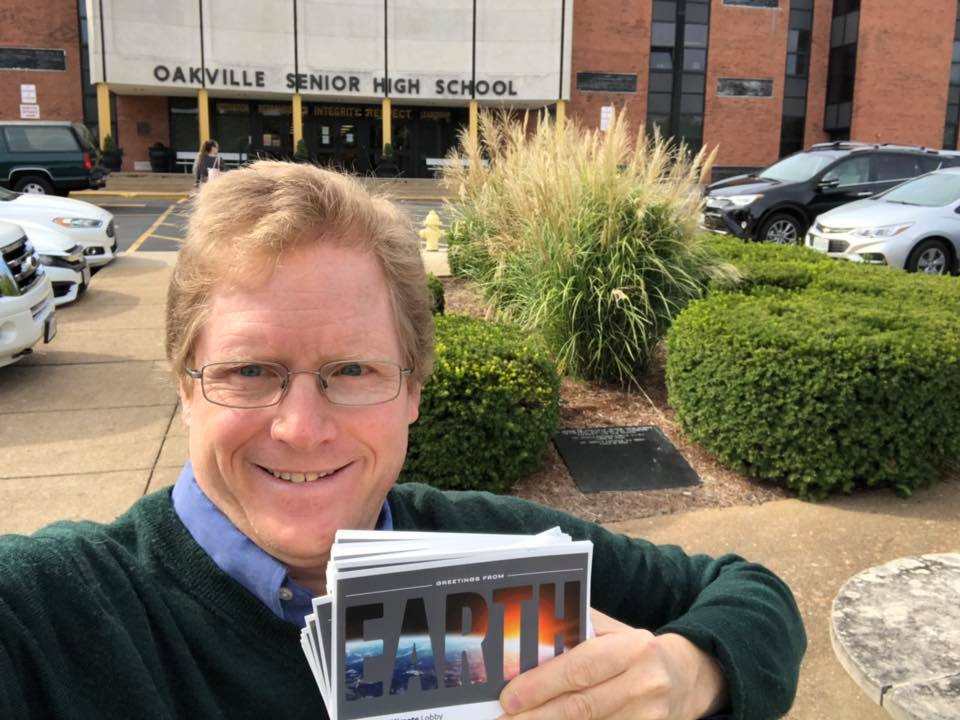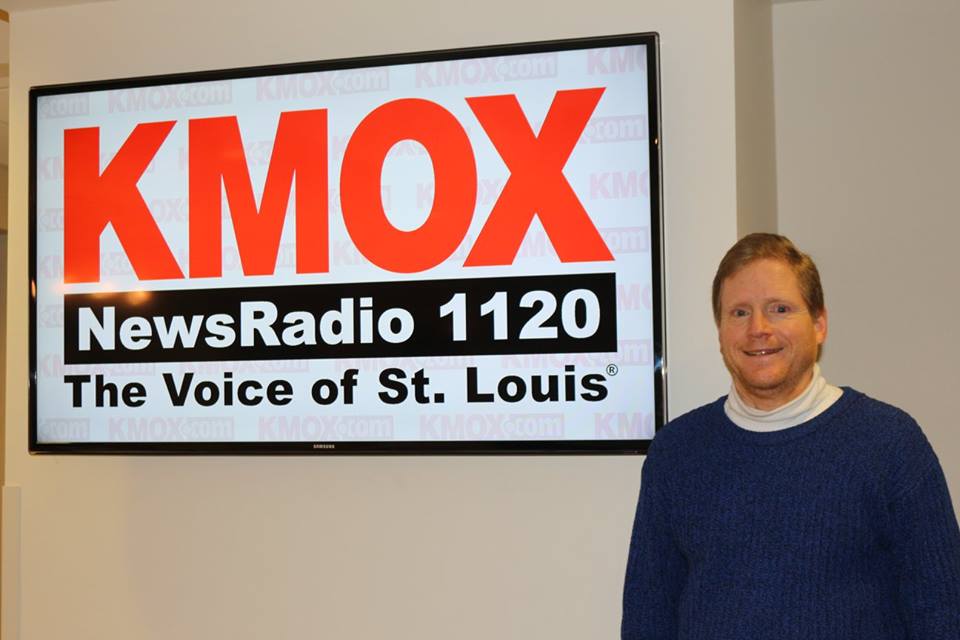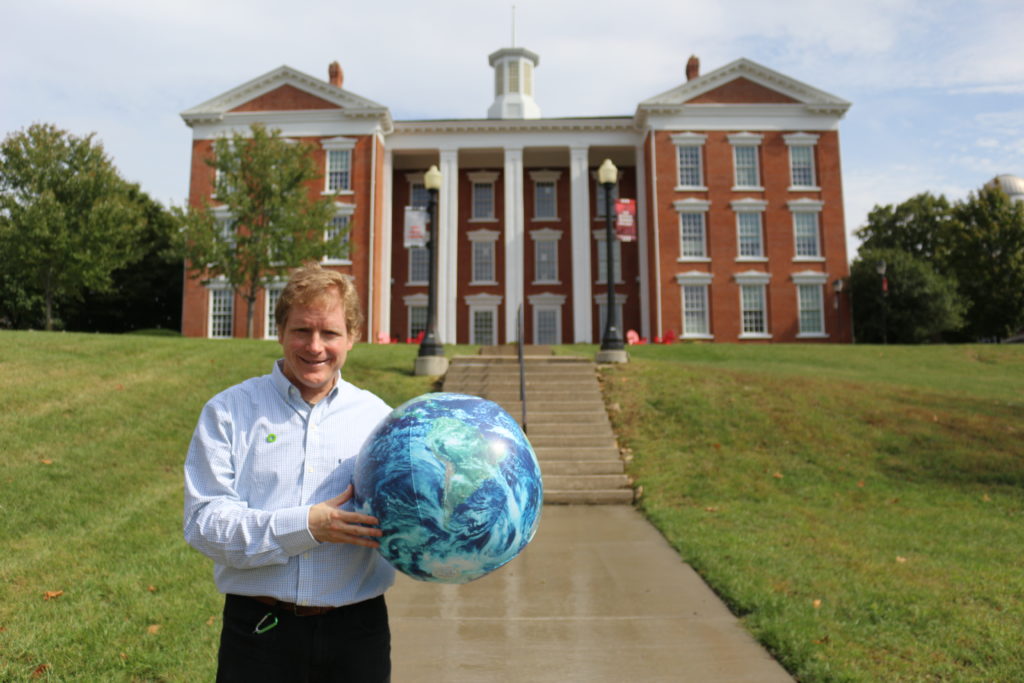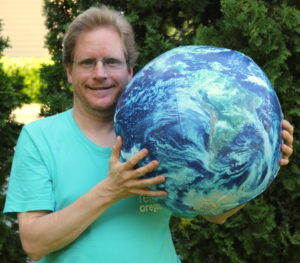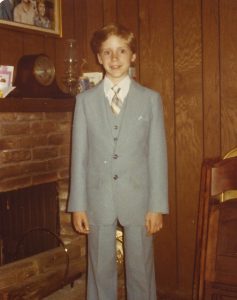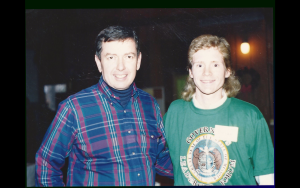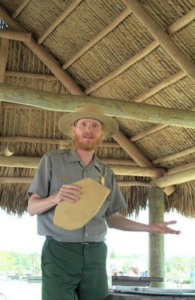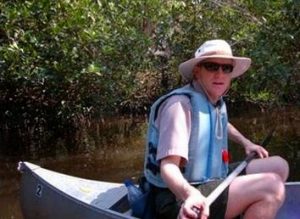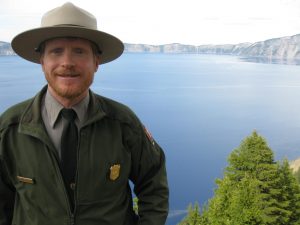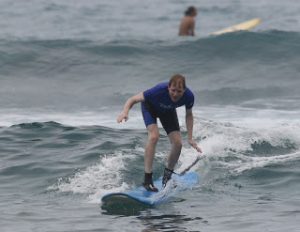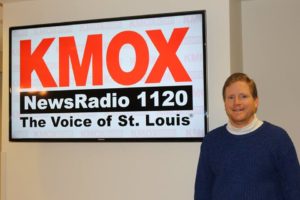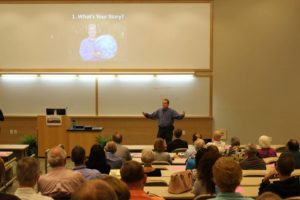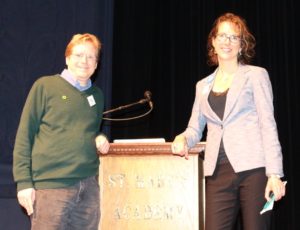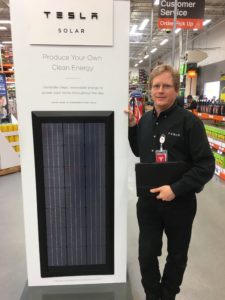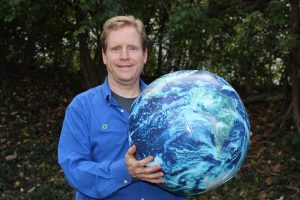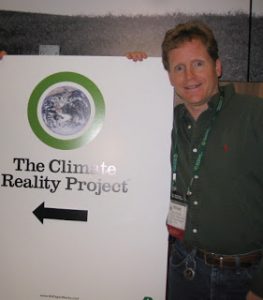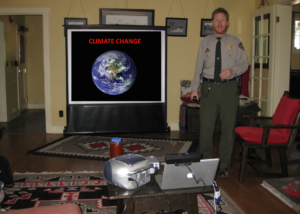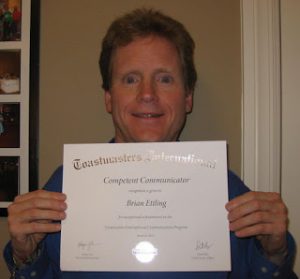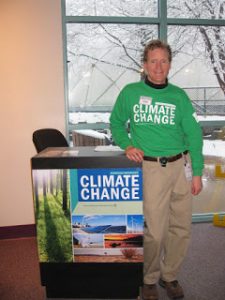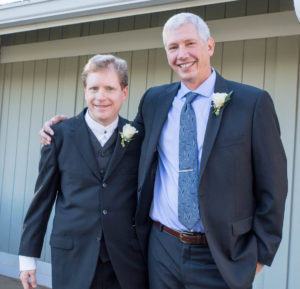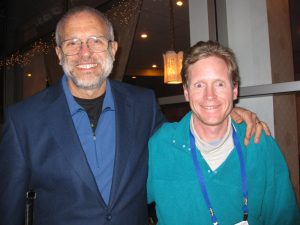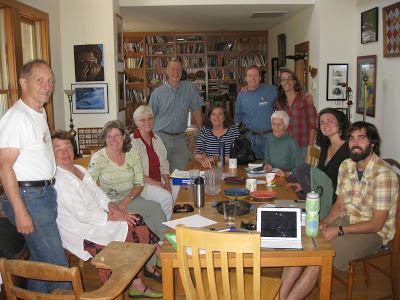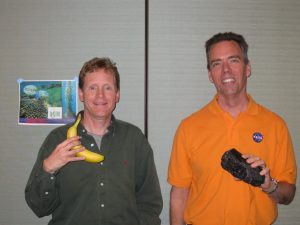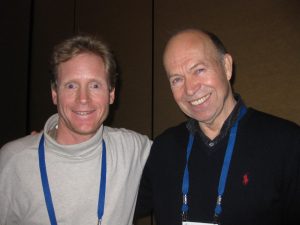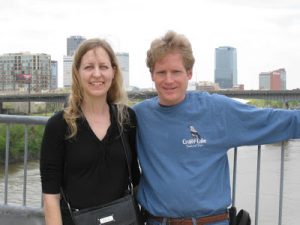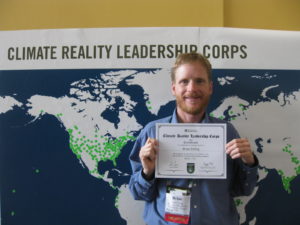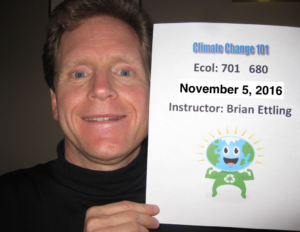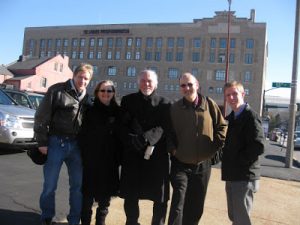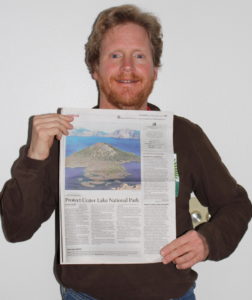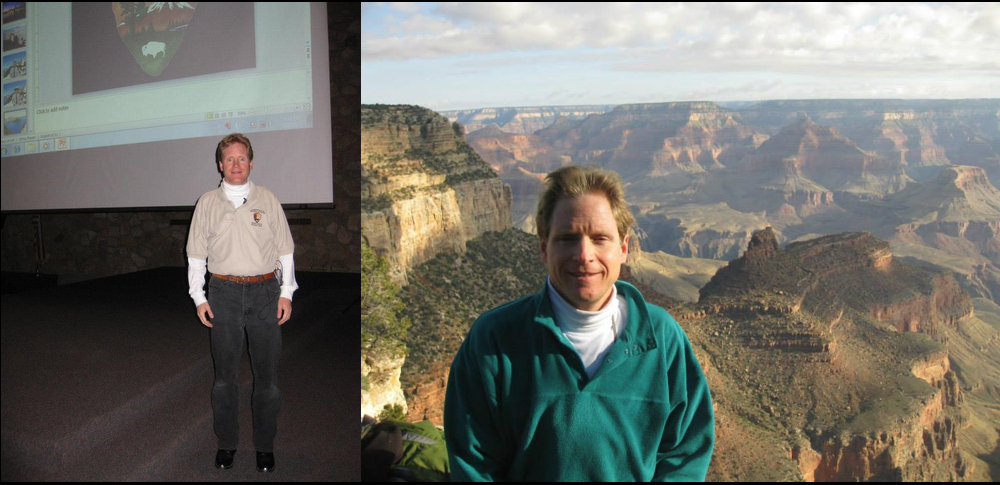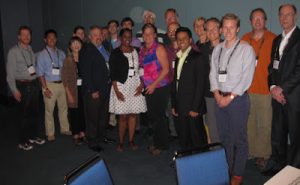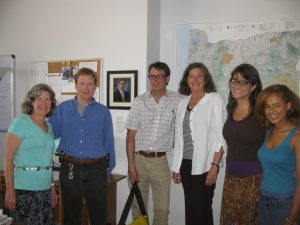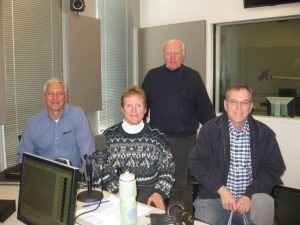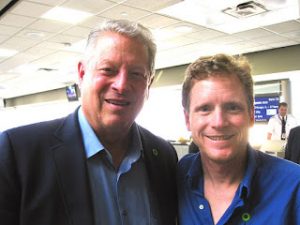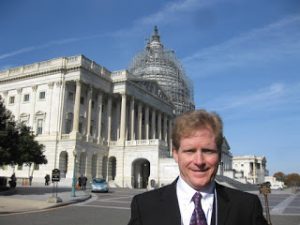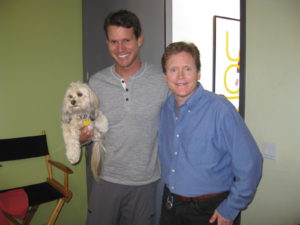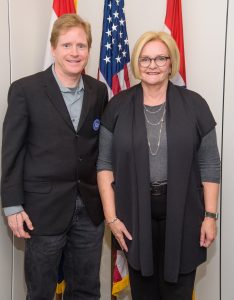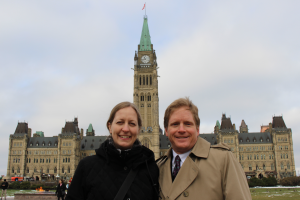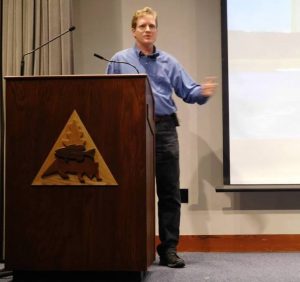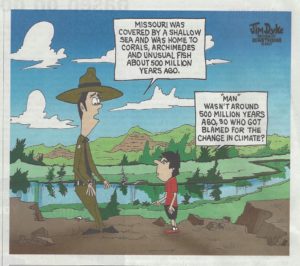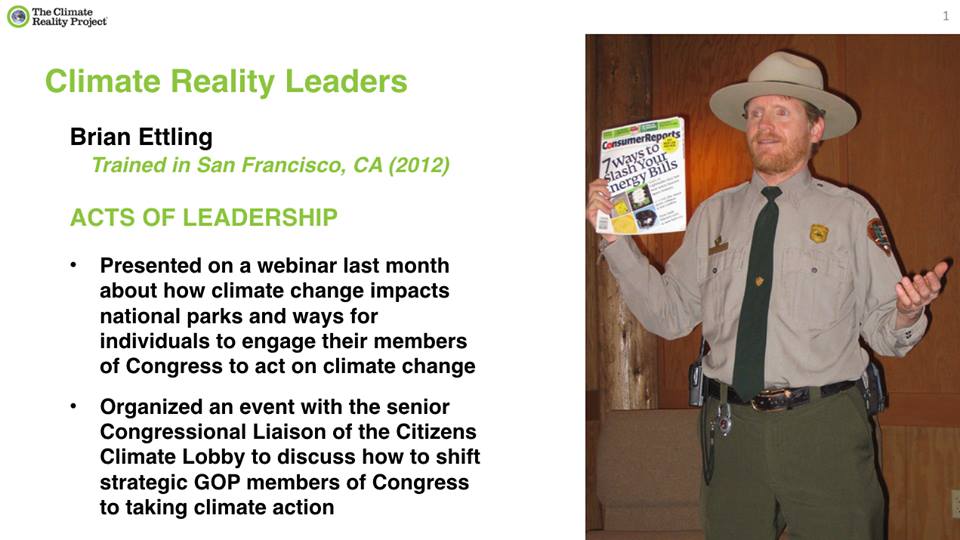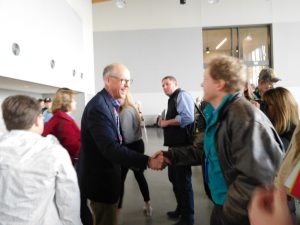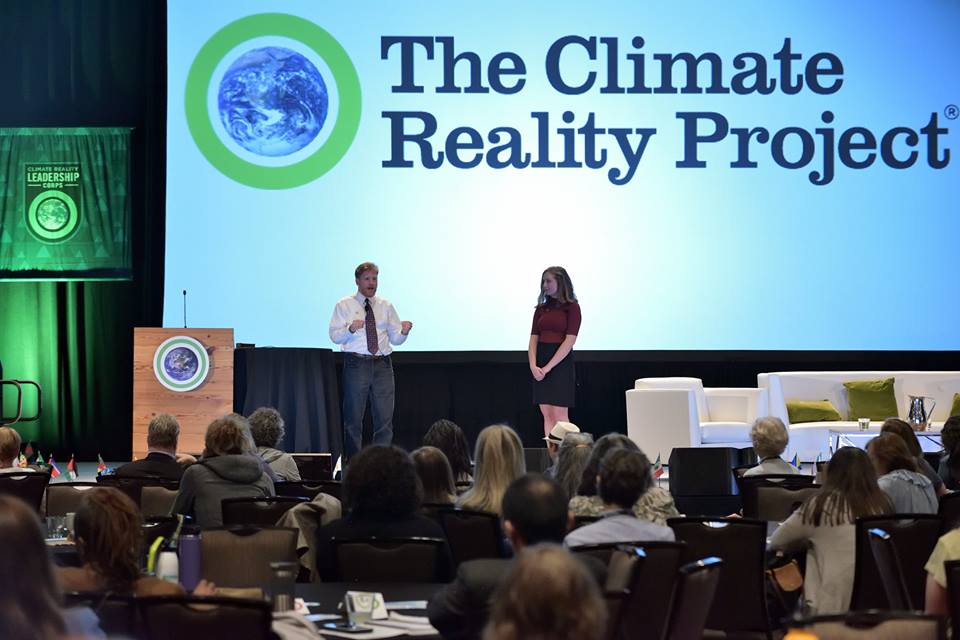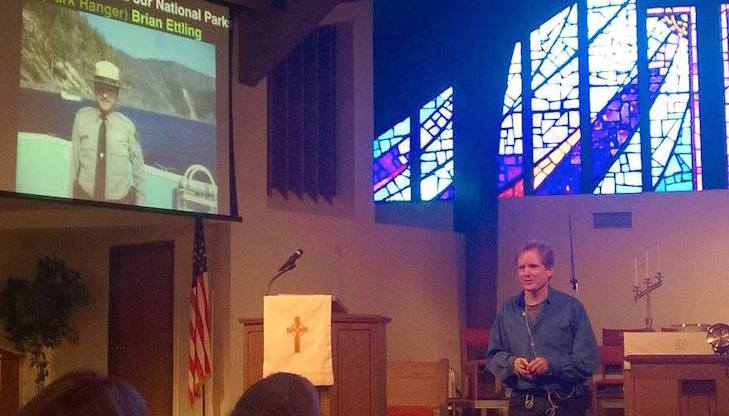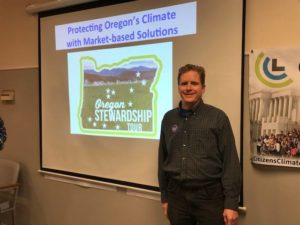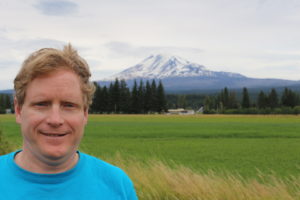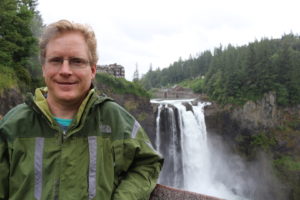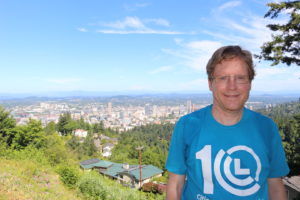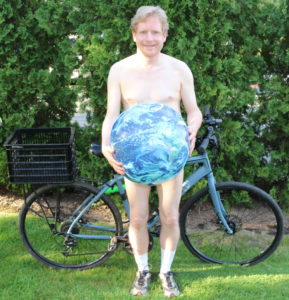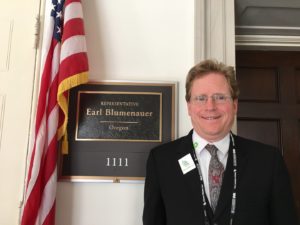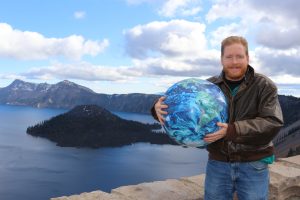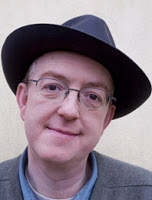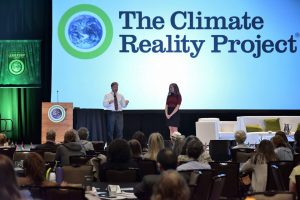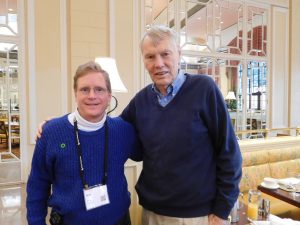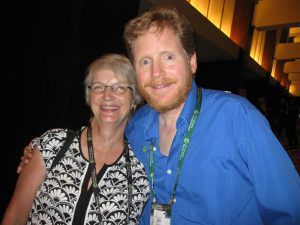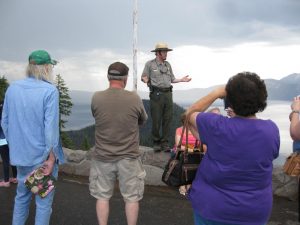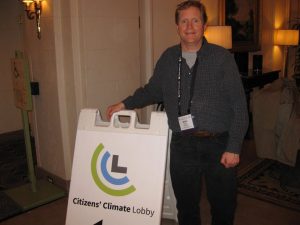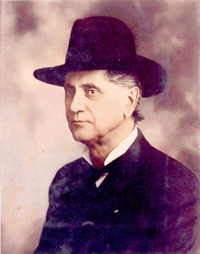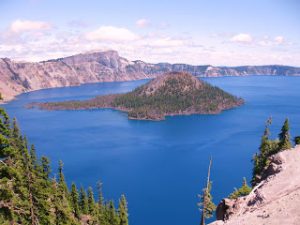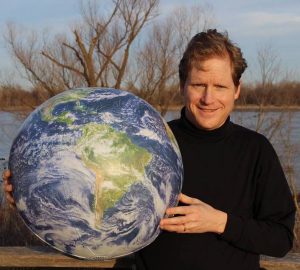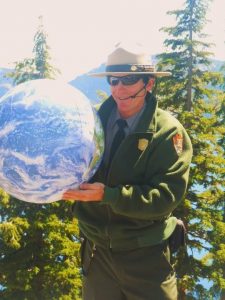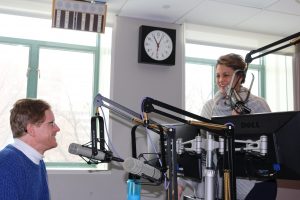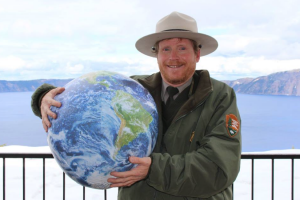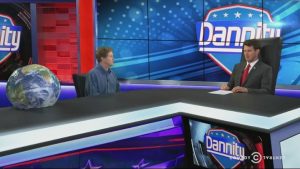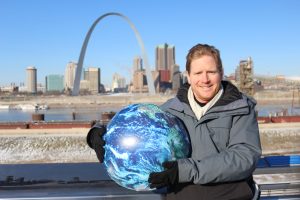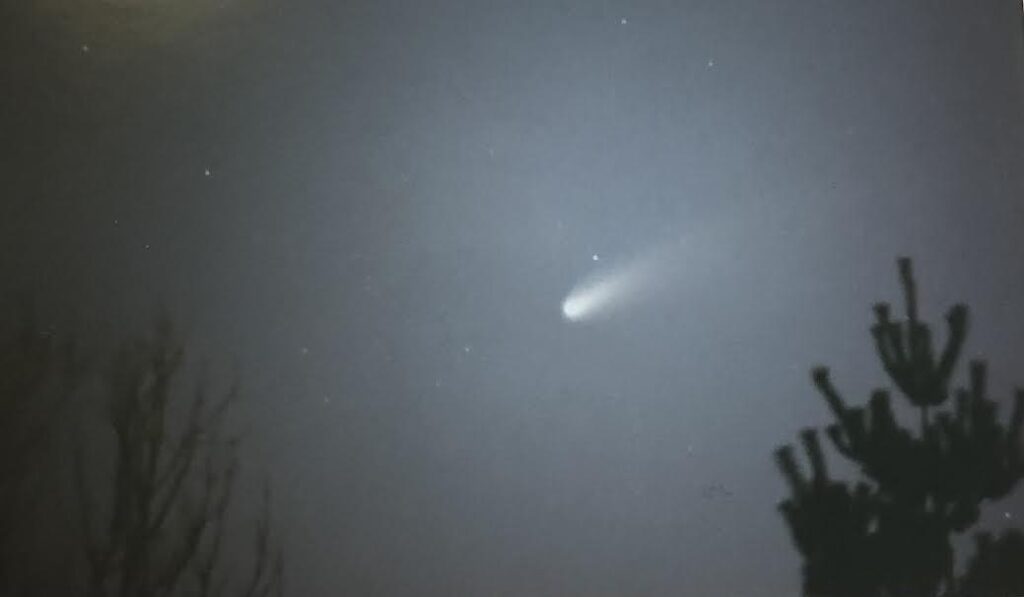
“Only poets can approach this task (describing the threat of climate change) until we come up with the right metaphor.” — Donald A. Brown, Associate Professor, Environmental Ethics, Science, and Law, Penn State University.
If you have not seen the Netflix film “Don’t Look Up,” I highly recommend that you watch it. Judging by the number of viewings on Netflix, you might have seen already. As of January 11th, ‘Don’t Look Up’ has become Netflix’s second biggest most watched film of all time, according to the Hollywood news website Deadline. Even though, it had 152.29 million hours watched globally in the week December 27-January 2 alone on Netflix, that does not mean that everyone loved it. Rotten Tomatoes, which is a composite of many movie reviews, gave it a score of 54%, which is not that great, kind of a meh score. On Rotten Tomatoes tomatometer scoring, it says: “When less than 60% of reviews for a movie or TV show are positive, a green splat is displayed to indicate its Rotten status.” Audiences on Rotten Tomatoes had a better response 78%.
I was intrigued to see it in December from reviews I read from people I respect and follow closely. Climate and energy writer, David Roberts called it “the first good movie about climate change.” On December 21st, climate scientist Dr. Michael E. Mann wrote an opinion commentary published in the Boston Globe that “‘Don’t Look Up’ succeeds not because it’s funny and entertaining, but because it’s serious sociopolitical commentary posing as comedy.” It wasn’t just Dr. Mann that liked it. Forbes magazine published Why Sneering Critics Dislike Netflix’s ‘Don’t Look Up,’ But Climate Scientists Love It. My friend Brian Kahn, Managing editor at Earther, writing about climate change & environmental justice, wrote Why People Can’t Stop Talking About Don’t Look Up. Well-known Astrophysicist Dr. Neil deGrasse Tyson tweeted this amazing response to the film:
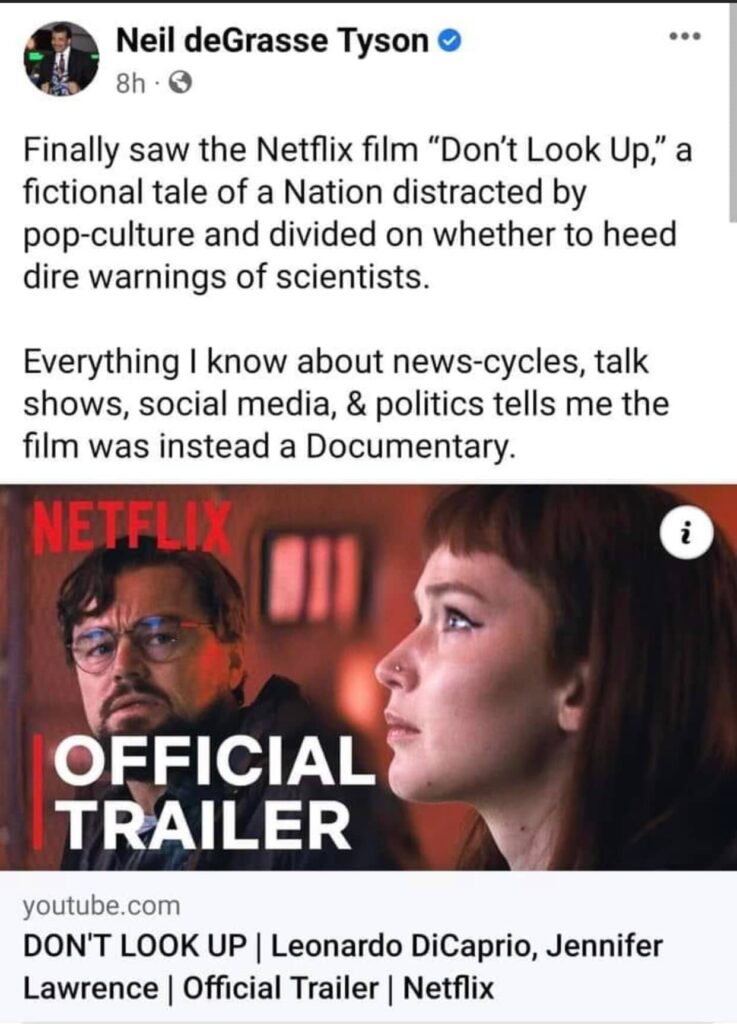
I was surprised when I posted this screenshot of Neil deGrasse Tyson’s tweet on my Facebook wall on January 1st and over 200 people soon re-posted it. I don’t ever remember anyone ever re-posting one my tweets or Facebook posts in that high of a number before. Clearly, the humor of “Don’t Look Up” connected with deGrasse Tyson and others. The title of the above mentioned Dr. Michael E. Mann’s Boston Globe op-ed was “Global destruction isn’t funny, but when it comes to the climate crisis, it might have to be.”
My Journey to Attempt Climate Change Comedy
Dr. Michael E. Mann’s title really hit home for me because I had tried to use humor for over the past 10 years to try to educate and inspire people to act on climate. In early December 2009 when I was temporarily living in Ashland Oregon, a friend and I were arguing over what I should do with my life. I finally yelled: “Fine! Do you know what I would like to do? If I could do anything, I would like to be the climate change comedian!”
My friend Naomi just about fell out of her chair laughing and responded: “That’s great! When you get home, I want you to immediately grab that website domain and start working on being ‘The Climate Change Comedian.'”
I went home and immediately grabbed that website domain. Several months later, a family friend helped me set up the climatechangecomedian.com website, which I maintained to this day. During the early months of 2010, I created my first climate change powerpoint called, Let’s Have Fun Getting Serious About Climate Change. It was not that funny of a powerpoint, but I did find a couple of good quotes why using humor is important for educating people about science:
‘Good teaching is one-fourth preparation and Three-fourths Theater.‘ – novelist Gail Godwin
“Jokes of the proper kind, properly told, can do more to enlighten questions of politics, philosophy, and literature than any number of dull arguments.” – science fiction writer Isaac Asimov
“When humor goes, there goes civilization.” – humorist Erma Bombeck
“If I had no sense if humor, I would long ago have committed suicide.” – Mohandas Gandhi
Nobody ever laughed at that last quote when I gave this presentation to friends, even though I thought it was very funny when I first saw it. I am a big fan of Gandhi and all he was able to accomplish. This quote shows me that he did not take himself or life too seriously. Nobody in the audience seemed to get that logic though. This was my start to try to do comedy. The key word is try.
As I started marketing myself as The Climate Change Comedian, I had a friend take pictures of me with my inflatable Earth Ball in April 2010.
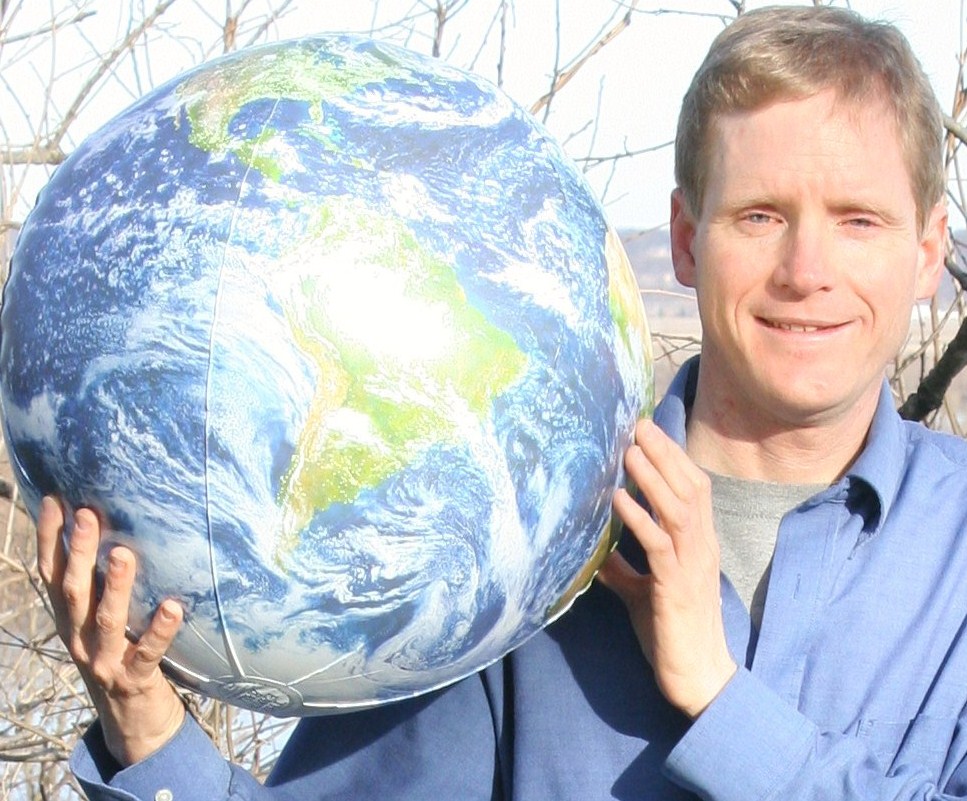
Outside of showing my powerpoint to friends, I didn’t know what to do with the title Climate Change Comedian. However, to do something on climate, I worked for the St. Louis Science Center for their temporary climate change exhibit in the spring of 2011. When I was working as a seasonal park ranger at Crater Lake National Park in the summer of 2011, I started giving a 40 minute evening campfire powerpoint talk on the impacts of climate change at Crater Lake. The title of the talk was called The Good, The Bad and the Ugly, which I was able to record for YouTube in September 2012.
I wove some humor into this ranger talk and the audience really seemed to connect with it. My humor was effective enough that Eric Knackmuhs, an Associate Instructor and Ph.D. Student at Indiana University, contacted me in November 2013 that he had found that YouTube video. He contacted me to let me know that he gave a presentation to other rangers, Using Humor to Introduce Controversial Topics, at the National Association of Interpreters Annual Convention in Reno, Nevada in November, 2013. Soon after Eric emailed me, we chatted on the phone because I was curious to find out what he thought I was doing well to connect with my audience. I wrote about this conversation in a February 2014 blog, Using Humor Effectively to Communicate Climate Change.
Besides giving this climate change ranger evening program at Crater Lake from 2011 to 2017, I was involved during the winters in my local St. Louis Toastmasters public speaking group around that same time. I gave around 20 speeches, 8 of which I was voted by my fellow speakers as “The Best Speaker” for out of the four speeches presented by members at their meetings. Nearly all of those speeches were about climate change. I inserted humor where I could in those speeches. Many of those Toastmaster speeches I recorded for YouTube.
My national TV appearances for climate change comedy
While in St. Louis, I thought it was time to promote myself as The Climate Change Comedian in a bigger way. In 2014, I released a short YouTube video with my wife (then girlfriend) Tanya Couture, Climate Change Comedian and the Violinist! I followed it up with a video with my Mom, Fran Ettling, Climate Change Comedian and the Pianist! and a 2015 video with my Mom and Dad, LeRoy Ettling, Climate Change Comedian and his Skeptical Dad! These videos actually led to Comedy Central’s Tosh.o inviting me to fly out to their TV studio in Culver City, CA to appear on their national TV show, which aired on August 2, 2016.
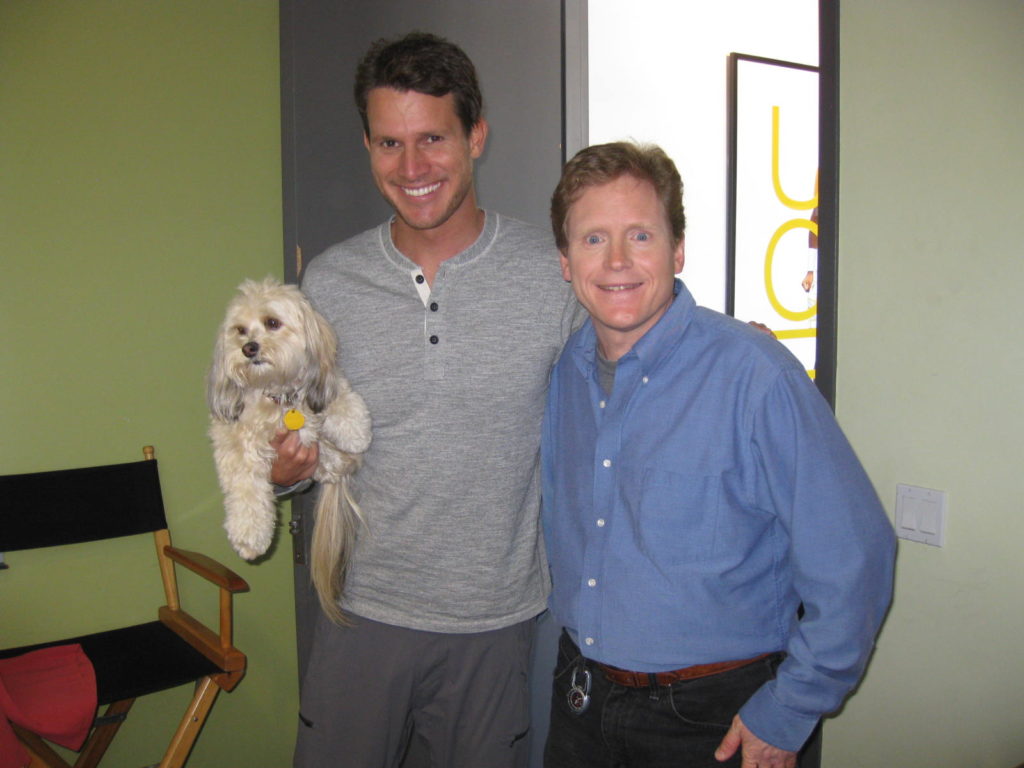
This ended up being the coolest experience of my life to on national TV using humor to promote climate change. Most of it was absurd because Tosh.o is an absurd and raunchy TV show. However, I was able to slip in some facts on climate change in between the crazy humor of Daniel Tosh. Before the show, he told me that he did accept the science of climate change and allow him to be funny, unless I wanted to come across on TV as weird. I took in his advice and I had a blast filming our TV segment. My mom appeared at the end of this comedy bit and Tanya got to witness the taping in the TV studio. Thus, it turned out to be an unforgettable family experience. Tanya, my mom and me were very nervous after the taping how my segment would be edited. However, we were very happy and relieved when it aired on national TV in August 2016.
I never thought I could top that experience in my life, nor did I want to out due it. Actually, I was invited back to Tosh.o in November 2020 to appear as part of a panel commenting about the 2020 Presidential election, in a segment spoofing CNN called “Danderson Cooper 361.” All I can say is that, just like they frequently say in Hollywood, ‘The sequel was not as good as the original.’ I was hoping to squeeze in some information about climate change, but none of it made it onto the segment. It felt similar to the Don’t Look Up film where Dr. Randall Mindy character (Leonardo DiCaprio) and his Ph.D student Kate Dibiasky (Jennifer Lawrence) appear on the TV show The Daily Rip. Those fictional TV hosts (played by actors Cate Blanchett and Tyler Perry) aren’t interested at all in hearing the scientists warn that a comet would hit the Earth in 6 months, being being entertaining. Nothing against Daniel Tosh, but the same thing happened here. He did ask me some climate related questions in the pre-recorded interview, but it was all edited out.
The best part of preparting for this national TV appearance was I did exchange emails with climate scientist Dr. Michael E. Mann of Penn State University to ask his advice on what to say. This was his response:
“These days, my messaging is focused on just two words: urgency and agency.
Yes, bad things are happening, we can see them playing out in real time now. But we can prevent the worst from happening. Assuming the election goes our way, there will be leader ship once again in Washington DC. And we have ready climate plans on the table from both Congressional Democrats and the Biden campaign. We need to hit the ground running, and in his perspective first hundred days, Biden and a hopefully Democratic Congress need to pass a climate plan that put a price on carbon, incentivizes clean energy, enforces regulations, and blocks support for new fossil fuel infrastructure.
That’s sort of my elevator pitch!”
That was an amazing gift to exchange emails with one of the world’s top climate scientists, Dr. Michael E. Mann. Ironically, Leonardo DiCaprio said he based his scientist role in Don’t Look Back, Dr. Randall Mindy, in part on climate scientist, Dr. Michael Mann. After Dr. Mann’s email, I wrote up my own answer to prepare to a climate change elevator pitch for this Tosh.o appearance. I practiced it over and ever to have it memorized to try to say it naturally during the TV taping. Because of the COVID pandemic and the short notice to film, this time I was filmed at home over Zoom, not flown to Los Angeles like the previous taping. Thus, it was nice not to have to leave home. As I shared with Dr. Mann over email afterwards, very disappointing that I was not able to squeeze in any message on climate change. This was his very gracious response:
HI Brian,
Happy to have been of any help. Sorry they didn’t use that material.
I’ve had a number of frustrating experiences before where a lot of stuff (and what I considered was the best stuff), got left on the cutting room floor.
It’s one the real challenges in the world of media interviews.
Good on you for the effort though, keep it up. It will ultimately pay off!
Hopefully, you can see from my story that I have some experience with climate change comedy, good and bad, especially trying to convey this message on national TV. Thus, I am very appreciative of Don’t Look Up writer/director Adam McKay using humor and the allegory of a comet hitting the earth to bring attention to the issue of climate change.
Frankly, since the election of Donald Trump as President in 2016 and the arrival of the COVID pandemic in early 2020, I have not felt funny in years nor I have had much interest these past few years in climate change comedy. Last September 2021 two international climate organizers emailed me about joining them for a Zoom event on climate comedy to respond to the November 2021 COP26 Climate Talks in Glasgow, Scotland. I was happy they wanted to use comedy and humor to promote climate action to help organize to pressure countries for effective climate negotiations at the Glasgow conference. However, I had to be honest with these organizers that I was flattered that they wanted to include me, but I had to decline. I didn’t feel like I had much of a sense of humor since the start of the pandemic. For the past several years, I just felt out of gas and ho hum.
The struggle for scientists, the news media and pop culture to alert the public about climate change
Quite simply, it has been an enormous struggle for scientists, the news media and popular culture to talk about climate change. I started this blog with abridging the quote from Donald A. Brown, Associate Professor, Environmental Ethics, Science, and Law, Penn State University. It is taken from his August 18, 2010 essay “On The Moral Imperatives Of Speaking Publicly About the Ethical Dimensions of Climate Change-And How It Must Be Done.” Here’s the full quote from the conclusion of his essay:
“Words fail us about how to characterize the magnitude of the harm that is being done in the name of ideology. It is too absurd on its face to think that any reasonable observer can seriously conclude that climate change science is a hoax or that the consensus view that humans are causing climate change has been debunked. In fact we are looking for the right metaphors to simply describe the sheer harmfulness of what has been happening. We would appreciate ideas on this issue. Only poets can approach this task until we come up with the right metaphor.”
It’s been a daunting problem for scientists to communicate about the climate crisis because it’s been referred to for years as “A wicked ‘Problem from Hell.'” Scientists, advocates, and policy makers have had a difficult time for years trying to communicate to the public about the urgency to address climate change because the problem is
1. Long term – over decades if not centuries
2. Global – all countries of the world emit greenhouse gases with the U.S, China, Russia, Brazil, European Union, etc. as the biggest emitters.
3. Invisible – typically hard to see greenhouse gases unless you are looking directly at a smokestack or urban smog. 4. Everywhere – the enemies range from the 100 companies responsible for 71% of global emissions to also most people on the Earth relying on the burning of fossil fuels (coal, oil & natural gas) to provide energy for their homes, cars, businesses, farms, etc.
5. Vested enormous special Interests deliberately misleading the segments of the American and global public to oppose collective action to solve climate change.
Some scientists, like Dr. Edward Maibach, the Director of The Center for Climate Change Communication at George Mason University, focused their research helping scientists and communicators, like me, to more effective in their messaging on climate change. I met Dr. Maibach twice. The first time was when I attended his talk at the American Geophysical Union (AGU) Conference in San Francisco, CA in December 2011. Then I met with him in his office at George Mason University in Fairfax, VA in February 2012. He directly told me then in a tone bordering on frustration about his work that ‘I just want scientists to speak more effectively to the public about climate change!’
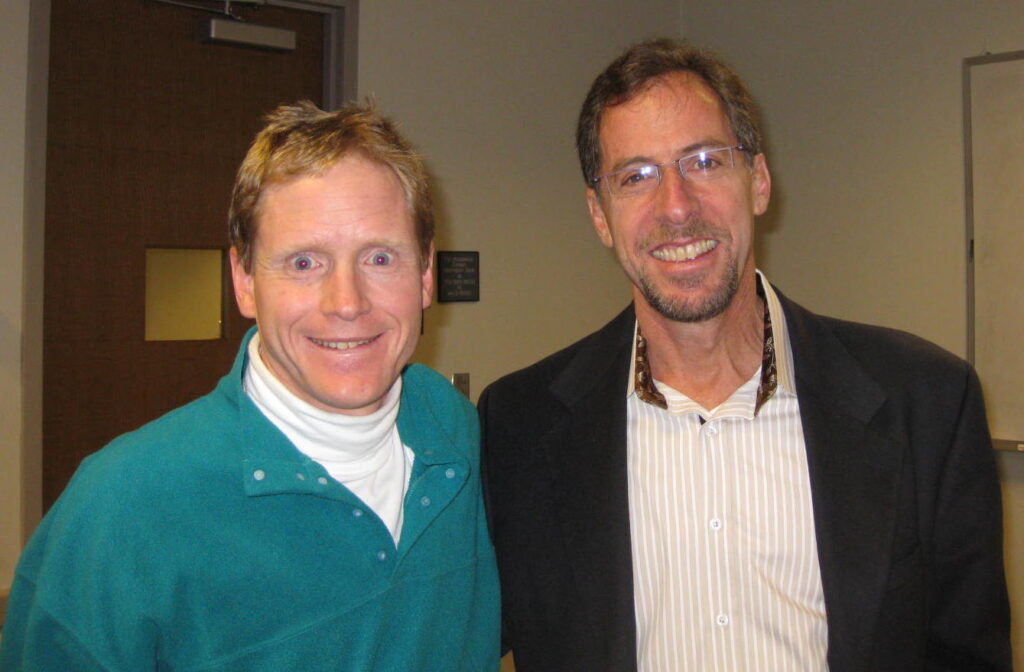
Exactly, 10 years ago, I blogged about Dr. Maibach’s sticky formula for effective public communication:
“Simple clear messages, repeated often, by a variety of trusted sources.”
Through his research polling the American public, Dr. Maibach also promoted this Five messages about global warming – identified through audience research – that you may wish to convey:
• It’s real.
• It’s us. (people are causing it)
• Experts agree: human-caused climate change is happening
• It’s bad for us.
• People can limit it, if we choose.
It was not just Dr. Maibach trying to get scientists to be more effective in their communications with the general public. Dr. Randy Olson, a Harvard Ph.D educated scientist and a former tenured professor of marine biology at the University of New Hampshire who resigned to become a filmmaker, wrote a book in 2008 called Don’t be Such A Scientist. I heard much buzz from scientists and fellow climate change communicators talking about this book when I attended AGU scientific conference in 2011. The theme of the book is the challenge scientists face in when communicating science to the general public that feels distracted by information overload. This was also a theme of Don’t Look Up that was portrayed very well by the actors Leonardo DiCaprio, Jennifer Lawrence, and Rob Morgan who played the scientists in the film.
Besides scientists struggling to communicate about climate change, pandemics and other scientific issues, the problem has been exponentially worse by the mainstream media that does not seem to know how to report on climate change. In a July 24, 2018 tweet, MSNBC TV host Chris Hayes famously called climate change a “palpable ratings killer.” In July 2021, climate & energy writer Molly Taft wrote in Gizmodo, Why TV Is So Bad at Covering Climate Change. This piece starts with climate scientist Dr. Katharine Hayhoe of Texas Tech University tweeting that she was bumped off of a scheduled interview CNN with Fareed Zakaria to talk about the record-breaking heat wave gripping the West “due to billionaire (Richard Branson) going to space.” Ugh!
Dr. Hayhoe didn’t hold back with her opinion in the tweet thread:
“That’s one of the big problems with climate communication, that its impacts accumulate over days, years, and decades. So there is always “breaking news” to displace it in our day to day conversations and media coverage both.
As a society it’s as if we have a collective cat brain: fixated on the latest shiny toy that’s waving in front of our eyes while in the meantime our tail is on fire.”
All of us climate advocates feel your pain, Dr. Hayhoe! Another reason why I liked Don’t Look Up was the way it made fun of TV infotainment shows with it’s fictional show The Daily Rip and their spoof of shadow and superficial TV hosts, played brilliantly by actors Tyler Perry and Cate Blanchett.
Overall, scientists and the media have done a dismal job communicating climate change to the general public. Hollywood and popular culture has been silent for the most part also. Outside of 2004’s Day After Tomorrow, which I had no interest in seeing since it was panned by scientists and film critics, I can’t think of any obvious pop culture attempts at climate change that wowed me or a large audience.
(Warning: spoiler in this paragraph and if you click on this YouTube video below) I don’t remember any great popular songs about climate change either. Having said that, the song “Just Look Up” by Ariana Grande & Kid Cudi in the Don’t Look Up film just blew me away. I am seriously thinking about downloading this song for my iTunes. To be completely honest, I had never heard of Ariana Grande before this film. Since then, I just learned she is is one of the world’s best-selling music artists. I was very impressed with her comedic performance in the film when she interacted with actors Leonardo DiCaprio and Jennifer Lawrence. The song “Just Look Up” in the film is beautiful and hilarious at the same time.
(Warning! Spoiler alerts in the next three paragraphs if you have not seen the film already) I loved how Ariana Grande dressed as a comet for a stage performance during the film. Even more, she was hung from wires with a ridiculously long train on her dress with a moving star scape background behind her to look like a comet. The lyrics to the song and the way that Ariana sung them with full force still has me has my wife and I laughing out loud in appreciation almost a month later. As a climate organizer, I can’t think of a funnier song that made me feel heard with these lyrics:
“Look up, what he’s really trying to say
Is get your head out of your ass
Listen to the goddamn qualified scientists
We really fucked it up, fucked it up this time…
Just look up
Turn off that shit-box News
‘Cause you’re about to die soon everybody”
That song alone has now made me an Ariana Grande fan.
Personal Favorite Films that inspired me to be a climate organizer
Having aired my personal frustration about the media and popular culture not being able to convey the gravity of climate change. I do want to say that there are Hollywood films that did inspire me to become a climate organizer.
10 years ago, I blogged how the film Titanic inspired me to be a Climate Change Communicator when I first saw it in a movie theatre just a week after it had opened on December 19, 1997. The 1912 British passenger liner Titanic sinking on its maiden voyage due to hitting an iceberg was 100% caused by human error. It was completely avoidable, if the ship’s captain and crew had taken the proper precautions. As I wrote in that blog,
“What was striking to me then in 1998 and to this day was the hubris and arrogance of White Star Lines and the ship’s designer, Harland and Wolff. They thought they had outsmarted nature with their watertight compartments on board and other engineering advances. They then foolishly believed their innovations would enable the ship to be “unsinkable.” Well, we all know how that turned out once the ship hit that iceberg.”
Ironically, I first starting learning about climate change back in 1998 as a naturalist guide in Everglades National Park. Park visitors were asking me about global warming when I was narrating the boat tours then. Back then, I learned that sea level rise had risen 8 inches in the Everglades in the 20th Century, four times more than it had risen in previous centuries for the past three thousand years. Because of climate change, sea level is now expected to rise at least three feet in Everglades National Park by the end of the 21st century. The sea would swallow up most of the park and nearby Miami since the highest point of the park road less than three feet above sea level. This scared me in 1998. It was like witnessing the Titanic had already hit the iceberg from the ship’s crow’s nest and the boat was already starting to take on water. Sadly, back in 1998, we knew that Everglades was already starting to take on water. The ocean was very slowly starting to creep in on this world class treasure.
In the back of my mind, I always wondered if anyone else had noticed dangerous parallels with the Titanic sinking and the modern day threat of climate change. It turned out that Titanic director James Cameron noticed the similarities. In April 2012, to mark the 100th anniversary of the sinking of the Titanic, the National Geographic TV Channel aired a two hour special Titanic: The Final Word with James Cameron.
This is how James Cameron connected the Titanic sinking to the current threat of climate change:
“Part of the Titanic parable is of arrogance, of hubris, of the sense that we’re too big to fail. Well, where have we heard that one before?…
Within that human system on board that ship, if you want to make it a microcosm of the world, you have different classes, you’ve got first class, second class, third class. In our world right now you’ve got developed nations, undeveloped nations.You’ve got the starving millions who are going to be the ones most affected by the next iceberg that we hit, which is going to be climate change. We can see that iceberg ahead of us right now, but we can’t turn.”
I am a big James Cameron fan, also because of his 2010 film Avatar, which really impacted me. That film is set in the 22nd century on the fictional planet of Pandora. It is about a greedy mining corporation from Earth have transported human colonists to try to strip Pandora’s natural resources and displace the Na’vi – a humanoid species indigenous to Pandora. In their lust for the planet’s natural resources, the humans push too far in their destruction of nature and attacking the Na’vi and nature strikes back. To me, it felt like James Cameron had made great allegorical film about human hubris in trying to dominate nature and nature having the final say. Besides me, others might not see these films as metaphors about climate change, but I could certainly see some parallels.
Besides these hugely successful films, it was the 2006 documentary film about Al Gore, An Inconvenient Truth that had an enormous impact on me. I was a huge fan of Al Gore ever since I read his 1992 book Earth in the Balance. I read this book in January 1993 during my first winter working as a seasonal employee at the front desk of the Flamingo Lodge in Everglades National Park, Florida. I had spent the previous summer working as a summer employee at Crater Lake National Park, Oregon. I had really fallen in love with nature, the national parks, the great outdoors, and our planet. Al Gore’s book really connected with me how he wrote about the negative impacts we humans were doing to the Earth in the early 1990s. Even though I had not voted for the Clinton/Gore Presidential ticket the previous November, this book made me feel very pleased that he was our Vice President with his deep caring for our planet. This book started me on a path for voting for the Clinton/Gore ticket in 1996 and I eagerly awaited him running for President in 2000. I just hoped he would win so he could steer the United States and the world on a more sustainable path if he was elected President.
Needless to say, I was deeply crushed when Al Gore lost the 2000 election. It’s still tough for me to talk about to this day. I personally knew friends in the Miami Sierra Club who voted for Presidential third party candidate Ralph Nader instead. Al Gore lost Florida by only 537 votes to Republican candidate George W. Bush. Ralph Nader received over 97,000 votes in Florida. As Al Gore said in An Inconvenient Truth, “Well, that was a hard blow. But, what are you going to do? You make the best of it.”
In my case, I hoped Al Gore would run for President again in 2004. He didn’t, but I eagerly anticipated his upcoming flim in 2006 when I heard that An Inconvenient Truth was coming to theaters. I had heard about climate change for years, but I had never seen a presentation on climate change so clear and easy to understand before like I had seen Al Gore do in the documentary. The film managed to be a summer hit making over $24 million in the U.S. and $25 million overseas. To my delight, An Inconvenient Truth was nominated for two Academy Awards for Best Original Song and Best Documentary, winning both at the 2007 Oscars. After first learning about climate change while working in Everglades National Park 1998, I was so happy that Al Gore and An Inconvenient Truth was finally bringing a much needed spotlight to this problem to the general public. More publicity for climate action happened when Al Gore was awarded the 2007 Nobel Peace Prize, along with the United Nations Intergovernmental Panel on Climate Change (IPCC), “for their efforts to build up and disseminate greater knowledge about man-made climate change, and to lay the foundations for the measures that are needed to counteract such change.”
With An Inconvenient Truth, Al Gore’s Nobel Peace Prize, and extreme weather events like Hurricane Katrina which did severe damage to New Orleans in 2005, I was hoping that some event would awaken the American public to truly take action on climate change. It was always frustrating for me that the public would never seem to mobilize for climate action. To be honest, I didn’t even know what to do for climate action after seeing the film, except I bought the DVD to watch it multiple times to absorb the information. I continued reading scientific books on climate change to educate myself on the subject to try to become more knowledgeable to talk about it.
Seeds were being planted though. Al Gore took all the profits he received from An Inconvenient Truth film and companion book, as well as the $1 million award from his Nobel Peace Prize to build the Alliance for Climate Protection, an organization founded and chaired by Gore to build grassroots momentum to solve the climate crisis. The Alliance for Climate Protection later became known as the Climate Reality Project. Their mission is to “recruit, train, and mobilize people to become powerful activists, providing the skills, campaigns, and resources to push for aggressive climate action.”
Even more, Climate Reality’s “signature activist program, the Climate Reality Leadership Corps, has trained over 42,000 change makers worldwide since 2006.” I was one of those individuals trained by Al Gore to become a Climate Reality Leader. Along with over 800 others from across the U.S. and other parts of the world, I attended a Climate Reality Training led by Al Gore in San Francisco, CA in August 2012. Since then I attended 7 more Al Gore led Climate Reality Training held in other cities in the United States where I mentored others attending the Climate Reality Training for the first time. I blogged about this experience in 2016, Want to be effective? Consider becoming a Climate Reality Project Leader.
For years, I said that attending a Climate Reality Training felt like jet fuel for me. Over the past decade, the trainings to give over 200 climate change talks in over 10 U.S. states and Ottawa Canada, co-leading the St. Louis Climate Reality Meet Up group from 2011 to 2017, give radio interviews, write 19 opinions editorials that were published in newspapers in St. Louis and Oregon, co-found the southern Oregon Citizens’ Climate Lobby group, give climate change speaking tours across Missouri and Oregon, organizing public climate events in St. Louis and Portland OR etc. All this led to being in the audience and very briefly being seen on screen when Al Gore was filmed for the 2017 film An Inconvenient Sequel: Truth to Power. Even more, a small picture of myself giving a climate change presentation was included in the 2017 companion book, An Inconvenient Sequel: Truth to Power.
Besides all this, my biggest highlight was personally meeting Al Gore at the 2015 Climate Reality Training in Cedar Rapids, Iowa. I blogged about our conversation afterwards, Asking Al Gore directly how to respond to his critics.
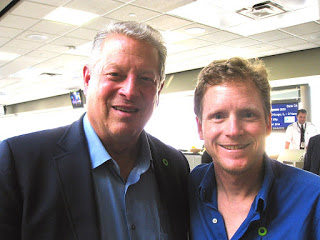
With all I have been able to accomplish as a Climate Reality Leader and Climate Change Organizer, maybe a film like An Inconvenient Truth did have a big difference for me and the thousands of Climate Reality Leaders trained by Al Gore or who just saw the film as far back as 2006. However, scientists keep telling us that we are not moving fast enough to reduce the threat of climate change.
In a March 2021 Washington Post interview with climate scientist Dr. Katharine Hayhoe she noted:
“During the (2020) lockdown around the world, during the pandemic, clean energy took off. The International Energy Agency estimates that 90 percent of new electricity installed around the world in 2020 will have been clean energy. Ninety percent. So the world is changing. It just isn’t changing fast enough. We need more hands rolling that giant boulder. It’s already rolling downhill slowly. And we need it rolling faster.”
Thus, we have to find ways to inspire the general public to step up their game for climate action. The latest news from the Yale Program on Climate Change Communication’s Global Warming’s Six Americas, September 2021, where they survey Americans’ opinion on climate change is that 33% of Americans are alarmed about climate change. Since the 6 Americas survey began in 2008, the alarmed “have grown rapidly to become the largest segment of the U.S. population today.” Trend of this ongoing polling shows that “Americans’ understanding of global warming’s reality and risks, and support for climate action is growing.”
According to 6 Americas researchers, the growth of the segment of Americans who are alarmed about climate change “is encouraging because progress on climate change requires strong, coordinated, and sustained action, and the Alarmed are the most likely to demand and support these actions by leaders. Yet, this potential ‘issue public’ still needs to be organized and mobilized to demand action at all levels of American society.”
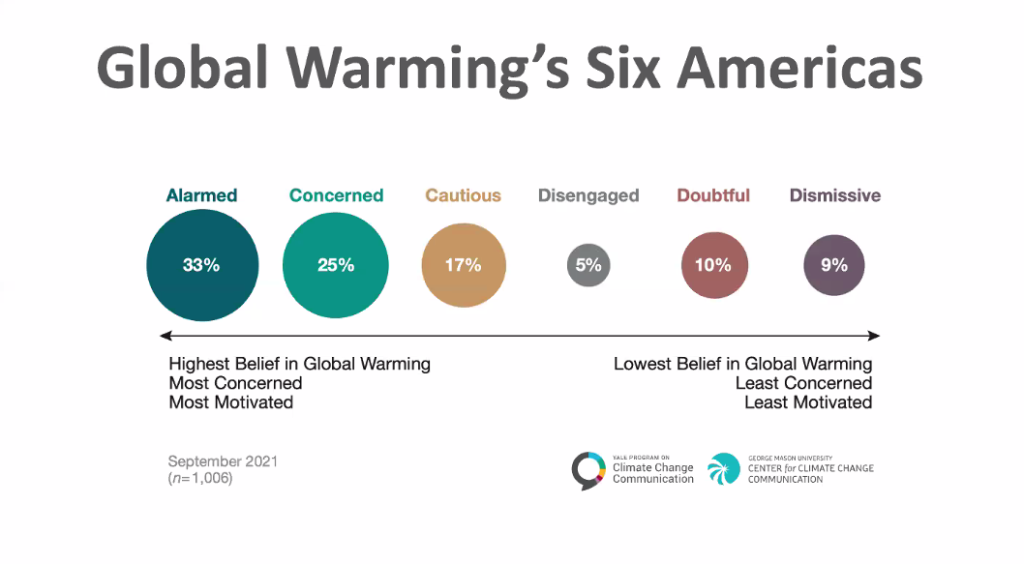
We still have a ways to go to realize inspire, mobilize, and energize the American public towards climate action. Scientists, the media, and popular culture has fallen short on the urgency to act on climate change now. This was why I was excited in December 2021 when I had heard that writer/director Adam McKay had taken on the task of creating a major movie release centered on a metaphor about climate change using comedy with an all star cast of Leonardo DiCaprio, Jennifer Lawrence, Rob Morgan, Jonah Hill, Meryl Streep, Cate Blanchett, Tyler Perry and others.
If someone could pull off this high wire act, I had confidence that Adam McKay could do it. I was a big fan of his previous two films using comedy to focus on the 2008 financial collapse, The Big Short, and the biography based on the life of former Vice President Dick Cheney, Vice.
My perspective from watching “Don’t Look Up”
I really do appreciate writer/director Adam McKay’s film “Don’t Look Up.” It feels good that others are taking up humor and comedy to bring attention to the issue of climate change. As soon as I heard buzz about Don’t Look Up in December and heard it was going to be released on December 24th, Christmas Eve, I knew my wife and I would be watching it as part of our Christmas celebration. It’s a film that made quite a deep impression that my wife and I are still talking about weeks later.
To be honest, I enjoyed Don’t Look Up, but I still found it to be a heavy movie experience the first time I watched it. I had listened to climate writer David Robert’s Volts podcast on December 10th, Don’t Look Up: the first good movie about climate change. I knew from his review that this film was going to be “fantastic” and “It’s hilarious, and if you’ve spent years banging your head against a wall trying to get people to pay attention to climate change, you will find a great deal of catharsis in the laughter.”
Watching it felt like one of those amusement park log flume rides where you are riding inside of a log like compartment, flowing on the water, trying to enjoy the ride, but having that knot in your stomach the whole time that you will be dumped down a big hill into the water at the end. It’s different than a rollercoaster where you face the biggest hill in the beginning then you get the feeling of flying, going up and down, sideways, before the rollercoaster car slows down to return you to the unloading zone. Between the lines on David Roberts’ blog and elsewhere, it was implied that Don’t Look Up would not have a happy ending. Thus, I did feel a sense of heaviness watching it.
Compounding the heaviness is that no one wants to listen to the scientists during the film. Not the media, the government, big business, or the general public. Sound familiar?
As a climate organizer, I will repeat what other writers, scientists, and organizers have said: I felt heard watching this film. As far back as 1998, when I was a naturalist guide in Everglades National Park. There was times when I was talking about the human destruction of the Everglades and my feeble knowledge of climate change with it’s impact on the Everglades back then. Tourists traveling to Everglades National Park are typically checking Everglades off their list in between going to the beach, visiting Disney World, partying at Miami Beach, and seeing the Florida Keys. Some boat tours that I narrated had Floridians, Americans, and Europeans who did not give a shit about the human caused destruction of the Everglades. At the same time, they were asking me, ‘Where’s the wildlife?’ A number of them didn’t want to hear that the pollution and human drainage of the Everglades to divert water to the cities and farms caused populations of wading birds to drop over 90%, as well as huge losses of the fish and alligator populations. Thus, I could relate to the scientists in the film trying to warn humanity that a comet was going to slam into the Earth in 6 months, but no one seems to care.
The acting by the entire cast was amazing by Leonardo DiCaprio, Jennifer Lawrence, Rob Morgan, Jonah Hill, Meryl Streep, Cate Blanchett, Tyler Perry and others. This was the best casting Hollywood could get for this movie and everyone was on the top of their game. They were all a joy to watch. I especially thought that Jonah Hill, playing the Chief of Staff and President Susan Orleans’ son Jason Orleans, steals the movie with his quirky insults and wit.
(Warning! spoiler in this paragraph! ) Having said that, I didn’t get the Cate Blanchett character the first time I watched it. Nor could I understand why the Jennifer Lawrence character is obsessed when the military Army General charges her and others for snacks that are free at the White House. The first time viewing the film, I didn’t get those film aspects. I needed to ponder those things days after seeing the film. I was determined to watch the film again a week later to appreciate what was happening.
The comedy of this film comes at you quick since it is mocking many targets. Watching the first time, I felt like I was being hit not just by a comet, but by an asteroid field. It was hard to keep track of everything. Don’t try! Watch it again several days later and you will catch so much more that you were not able to notice the first time. The film’s subject is heavy with a huge comet is headed towards Earth but most of the characters are too dense to care. About halfway through the movie, I asked my wife , “Are you enjoying this movie?”
She can be a tough critic watching when she is watching some films with me, but this time she enthusiastically said, “Yes!” Thus, this is a good date night film with your partner and a good film to watch with family and friends to discuss afterwards. Weeks later, we are still laughing about items we remember in the film.
Even though I was not able to understand all the characters or plot devises the first time I watched it, I still see it as a great film. Many great films take more than one viewing to truly appreciate their message and story. That could also be the case for you if you didn’t quite understand Don’t Look Up. Give it a chance to watch it a second time.
My second viewing of Don’t Look up. (Warning! Many spoilers here!)
The second I watched Don’t Look Up was just sitting by my laptop by myself to try to fully absorb the messaging of the film. I took notes and I ended up with 24 pages of things I liked and connected with me. I felt like I was able to catch and appreciate so many of the jokes and humor on the second viewing. I already knew the somberness of the ending. Thus, I didn’t have the knot in my stomach knowing that film would not have a happy Hollywood ending where everything turned out ok.
Actually, to take notes, catch as many details as I could, and truly try to listen to all of the dialogue, I would stop the button. Thus, it took me many hours over a couple of days to watch the film completely in that manner.
For other serious climate advocates, I recommend doing the same thing, realizing that would be very time consuming. However, it would be very rewarding to do this to see all the small items that appear on the scene for a brief moment and the jokes one might missed watching the movie the first time. For instance, did you catch the astronomer Carl Sagan figurine placed suddenly on the character Kate Dibiasky’s (played by Jennifer Lawrence) desk just one minute into the film?
Many people did. This included climate scientist Dr. Michael E. Mann remarking on this in his January 18, 2021 discussion with film Adam McKay.
Just one minute later in the film, you can very briefly see a drawing of Darwin and Galileo on the bulletin board in the astronomy lab with the post-it-note sticking to it a handwritten quote “Throw my telescope in the air sometimes singing ayyyo Galileo!” (It’s in reference to a 2010 pop hit song Dynamite by Taio Cruz, where the actual lyric was “I throw my hands up in the air sometimes, Saying ‘Ayo! Gotta let go!'”) Looks like the geeky science humor that you might see in any science lab. Yet, the movie seems to be saying that it takes science and the scientific process seriously.
Then 13 minutes into the film, there’s a quick camera shot focusing in on part of a painting in the fictional White House. The scientists (played by Leonardo DiCaprio and Jennifer Lawrence) are in a waiting area for a meeting with the President of the United States to brief her on the comet heading towards Earth. The painting in a close up shot is of a Native American going into battle in the 1800s probably fighting again the U.S. Army. I thought it was a subtle reference how the Native Americans were overrun by the white colonists and U.S. government. I interpreted this as how the Native Americans screwed then with the settlement of the U.S. and the people in the film were about to be screwed by a comet hitting planet Earth.
There was so many other details like this that caught my eye very quickly in my first viewing, but the details were really able to jump out at me when I watched the film again.
With details like this, I think that Don’t Look Up will still be talked about decades from now, if we humans are still around then with the threat of climate change, nuclear war, Russian or Chinese cyber wars, etc. I have no idea where the film will land in the pantheon of great films. However, with all the amazing small details and quick jokes serving as a reference to climate change, I would suggest that a group of climate advocates get together to watch the film over several hours. Attendees could then yell “Stop!” when there’s something they want to discuss. In his 1991 essay, ‘Citizen Kane’ a masterpiece at 50, film critic Roger Ebert wrote how in 1991 how he showed Citizen Kane at the University of Colorado “joined by several hundred students, faculty and townspeople. We sat in the dark, and audience members called out “stop!” when there was something they wanted to discuss. Scene by scene and sometimes shot by shot, we looked at the performances, the photography, the special effects.”
I am not saying that Don’t Look Up is as good as Citizen Kane or other Hollywood great films but compared to other Hollywood dramatic, action, and satirical films about climate change, Don’t Look Up is so much better than other Hollywood attempts to at a climate change themed movie. Citizen Kane is Citizen Kane. It’s a fantastic film that I highly recommend, if you get a chance to see it. However, I do think that Don’t Look Up is the Citizen Kane of any Hollywood scripted climate change attempted movie so far.
More items that jumped out at me while watching Don’t Look Up. (Warning! Many spoilers here!)
When I was watching Don’t Look Up for the first time, I didn’t understand why the General Themes character (played by actor Paul Guilfoyle) charged the scientists (played by Leonardo DiCaprio, Jennifer Lawrence and Rob Morgen) for snacks when they were waiting for hours to a meeting with the President of the United States. It made no sense to me.
Then, I heard there was several interpretations for this, which I now totally understand. First, I heard writer/director Adam McKay say in a podcast interview that the General charging the scientists for snacks does not mean anything. He was just toying with the audience. However, the Kate Dibiasky character (played by Jennifer Lawrence) does seem distracted by General Theme’s action for the rest of the film. It showed that even the scientists could get distracted when the moment called for her to stay focused to educate the public about the dangerous pending comet. It’s funny that I was not the only one pondering about this after seeing the film. There are multiple articles about this on the internet with others asking the same thing. In kevin Erdmann’s article for Screenrant, Don’t Look Up: Why The General Charges For Free Snacks he called it a “a humorous commentary on a much bigger societal issue.”
Erdman believed that “the general charging for free food is certainly in line with the film’s core message about the rich and powerful taking whatever they want simply because they can, regardless of the consequences or impact on the greater good.” He went on to say that, “charging for free food is seemingly insignificant, but it serves as a microcosm of the grander issues and commentary at play about rampant greed.”
Thus, with these different perspectives, It’s really up to you why General Themes charged for the snacks.
The first time I saw Don’t Look Up, I was really creeped out by the female TV host Brie Evantee (played by Cate Blanchett) on the fictional TV show The Daily Rip. I just found the character to be repulsive in her phoniness. The character had platinum blonde hair, super shiny pearly white teeth with a fake smile to go with it and a super chipper personality to perform for her morning TV show with no shred of authenticity. Brie was more interested in hitting on Dr. Mindy than hearing his breaking news that a planet-killing comet was headed directly for Earth. I just didn’t like this character at all the first time I saw Don’t Look Up.
It was a few days later that I started understanding this character. She is a female compilation of sleazy TV news anchors Matt Lauer, Charlie Rose, Bill O’Reilly, etc. who lost their jobs during the #MeToo Movement that blew up in 2017 because they seemed more interested in scoring with the opposite sex than being reporting the news. She also seemed like so many blonde bubbly TV hosts, especially on Fox News, that all look like eye candy and seem about as geniune as cotton candy. Cate Blanchett is a terrific actor. I have enjoyed her work in previous films. She did a great job of inhabiting this role and kudos to Adam McKay for creating a character that I was still trying to figure out days after seeing the film.
The character that just made my skin crawl was the big tech billionaire Peter Isherwell (played brilliantly by actor Mark Rylance). He had no redeeming qualities and I found him to be so fascinating by his lack of humanity. He never gave eye contact to another character. He was so in love with his own creative tech world. He was all about making money for his corporation, even if it had a chance of destroying planet Earth. Hats off to actor Mark Rylance and writer/director Adam McKay for creating a weird high tech giant with a that clearly seemed to be a composite of Mark Zuckerberg, the late Steve Jobs, Elon Musk, Tim Cook of Apple Computers, Jeff Bezos, etc. Netflix Diaries created this meme about Peter Isherwell posted on Twitter on December 27, 2021:
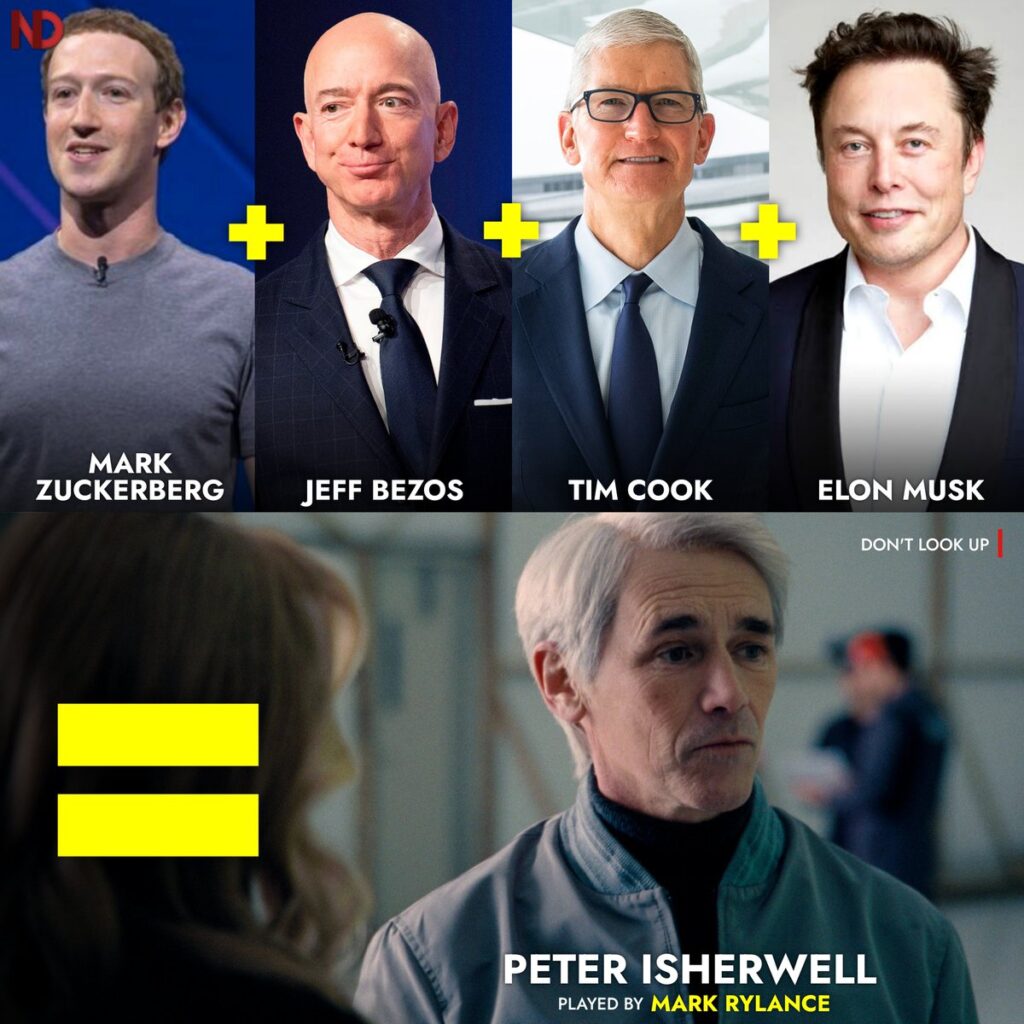
I briefly worked for Tesla in 2018. I never met Elon Musk. I was just entry level staff. My job was was to try to convince customers at Home Depots in Portland Oregon to schedule an appointment with Tesla solar advisors come to their homes to sell them on installing Tesla solar panels on their home’s roof. The frustrating part of working for Elon Musk is that he would say weird things in the news that would trigger a drop in the value of Tesla stock. We would then wonder if we would have jobs if the price dropped too much. I remember thinking when I worked at Tesla: ‘I wish he would keep his big mouth shut!’
Don’t Look Up also (correctly) poked fun of moderate climate advocates like me caught in wishful thinking
Many other things I could mention, but one thing did jump out at me that I do want to highlight. For the movie critics that didn’t like Don’t Look Up, some them complained that actors like Chris Evans “show up for literally no reason at all” in the film. I beg to differ.
(Warning! Another spoiler) Chris Evans plays actor Devin Peters. As the comet is headed towards Earth, actor Devin Peters is on the TV show The Daily Rip and doing interviews with the press for his new action film Total Devastation. Ironically, Total Devastation is scheduled to open in theaters the same day that the comet is projected by scientists to hit the Earth. During his interview with a TV entertainment reporter, asks about his button with the Don’t Look Up and Just Look Up arrows. Devin Peter’s response:
“I think as a country we just need to stop arguing and virtue signaling. Just get along.”
The reporter then commends him saying, “This is so refreshing. I think we are all tired of the politics.”
That connected with me. I felt like it was spot on in also poking fun of folks like me who have tried to find a middle ground to reach out to both sides on the climate change. I consider myself a moderate who has tried to connect with progressives and conservatives, with blogs like The Conservative Case for a Carbon Tax, The Best Way I know to Reach Climate Change Doubters, and My Winning proposal for you (for climate contrarians looking to change my mind). By joining a Toastmasters group in my hometown of St. Louis MO from 2011 to 2017 and giving climate presentations in the conservative areas of Missouri and Oregon, I have tried to reach out to conservatives, moderates, and progressives to take climate action. I have tried to be the person between the two arrows, like what was on Devin Peters’ button. At the same time, I have learned the hard way that you are never going to convince hard core climate deniers. Constantly trying to appeal to both sides can lead to magical, wishful thinking. Thus, I also realistically blogged My 9 tips to Respond to Climate Denial when giving a Climate Change Talk.
Having seen myself in the film as one of those folks striving to appeal to both sides, I wished I could have access to the script to weave in the story somehow the people in the climate movement whom I find frustrating. I call them ‘The Climate Individualists.’ I think of them as the folks who say: ‘I am fighting climate change by going vegan, putting solar panels on my roof, driving an electric car, riding my bike as transportation, not having kids, living off the grid in an eco village, growing my own food, not flying in an airplane, reducing my personal carbon footprint, not shopping for new clothes, buy local, etc. You should too. If everyone does this, we will stop climate change.’
Those are all virtuous, well-meaning solutions that will help reduce the burning of greenhouse gases which causes climate change. I applaud these efforts. I try to do as many of these solutions as I can to reduce my carbon footprint. However, it’s simply not enough to reduce greenhouse gas emissions. Individual actions let government, corporate polluters, factory farms, large scale clear cut logging companies, coal extraction companies, oil companies, etc. off the hook. It’s magical, wishful thinking to believe that individual solutions alone will fix climate change. As I wrote earlier on this blog post, 100 companies responsible for 71% of global emissions.
Climate scientist Dr. Michael E. Mann addressed this problem of climate individualism in a 2019 USA guest opinion, You can’t save the climate by going vegan. Corporate polluters must be held accountable. The sub headline of this opinion editorial is “Many individual actions to slow climate change are worth taking. But they distract from the systemic changes that are needed to avert this crisis.”
In the middle of this op-ed, Dr. Mann writes: “a fixation on voluntary action alone takes the pressure off of the push for governmental policies to hold corporate polluters accountable. In fact, one recent study suggests that the emphasis on smaller personal actions can actually undermine support for the substantive climate policies needed.”
For effective action, we must be contacting our members of Congress to enact policies such as carbon taxes so that the large corporations, such as those 100 companies, and businesses in general will reduce their emissions. As Dr. Mann states in this op-ed, “We need corporate action, not virtue signaling.”
It can’t be stressed enough. INDIVIDUAL ACTIONS ALONE WILL NOT SOLVE CLIMATE CHANGE. Dr. Mann ends this op-ed writing: “There is still time to avert the worst impacts of climate change, but not without immediate, collective action.”
Climate scientist Dr. Katharine Hayhoe also addresses her 2018 YouTube video, The easiest ways to fix climate change is population control and going vegan – right?
I am happy that Adam McKay poked fun of moderate climate advocates like me who has tried to appeal to progressives and conservatives. I think that the plot and story is great of Don’t Look Up the way that it is. At the same time, if I had a chance to nudge him when he was writing his script, I would have also included a spiritual minded character preaching that we are all sinners and the comet is God’s punishment for our pollution and harming the environment. Thus, if we atone for our sins by praying, going vegan, having less or no kids, putting solar on our roofs, buying electric cars, weatherizing our homes, riding our bikes instead of driving cars, join him in living in an eco village off the grid, etc, but not worry about what corporations or the government is doing. If we all live in a simple virtuous way in our individual lives that pollutes less and pleases God, that will cause the comet to alter its course. Just an idea for a future movie, if anyone wants to grab it. (Hint! Hint!)
Seriously, if you read this blog, Adam McKay (especially if you read this very long blog up to this point, God bless you!), I love this film just the way it is!
Having said that, my personal pet peeve is that it’s not enough to do individual actions on climate change. It is vital to contact elected officials, such as your members of Congress, to urge them to make polices addressing the climate crisis the highest priority. I venture to say that Leonard DiCaprio would agree with me on this one.
In a promotional roundtable interview with the cast of Don’t Look Up, Jonah Hill asks: ‘What can one person do to take climate action?‘ Leonardo DiCaprio’s response: ‘The #1 thing is vote in elections for people who take the climate crisis seriously and want to take action.’
Leonardo then went on to say, “And there has always been a conversation about what you can do in your personal life and that has a lot of validity, but there are powers that be that are going to create massive change. And that comes from the private sector. It comes from government and we need to put pressure on the powers that be in the best we can in our own possible way.”
Jonah Hill then tries to clarify: “So awareness in the minutia of your voting towards these climate issues?”
Leonardo DiCaprio: “Absolutely!”
Don’t Look Up has a fantastic conclusion (Spoiler Alert!)
For some movies, they can be great to watch most of the way through, but then they screw up the ending. Don’t Look Up delivers perfectly at the end. It’s not a typical Hollywood ending. Actually, the ending hurts to watch and nearly brought tears to my eyes. This is because it is conveying an important message what happens when we don’t take science seriously.
I knew from climate writer David Roberts Volts blog from December 10th, Don’t Look Up: the first good movie about climate change that Leonardo DiCaprio’s “final words in the movie, as he is surrounded at the dinner table by family and friends: ‘We really did have everything, didn’t we?'”
Like David Roberts, I can’t stop thinking about those final words. Leonardo DiCaprio’s character says it with a lot of love for his family, the blessings he saw in his life all around him, and the fantastic experience of living on Earth with the ability to have everything. It is a beautifully delivered line by Leonardo DiCaprio. Even more, the true story is that the line was DiCaprio’s idea. It was not in the script, according to writer/director Adam McKay.
If Don’t Look Back stands the test of time as a great film, that line will be quoted and remembered as one of the great closing movie lines in history.
After this heavy ending, writer/director Adam McKay also included two post credit “endings” that are more on the humorous side. I don’t want to give away too much, except that the super rich try to move to another planet. Ironically, it does not end up well for them. I loved those extra scenes, so you don’t want to leave as soon as the credits starts.
Because I have been alarmed about climate change for decades, Thank you Adam McKay and the entire team who made Don’t Look Up for this very impactful film experience.


